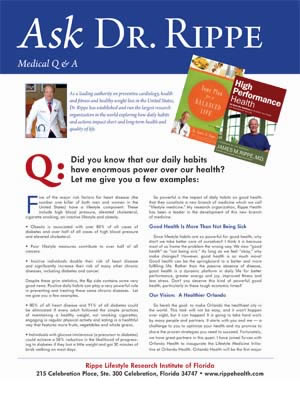November 8, 2025

DR. RIPPE RECEIVES LIFESTYLE MEDICINE PRESCRIPTIONS UNIVERSITY LIFETIME ACHIEVEMENT AWARD
On November 8,2025 Dr. Rippe received the Lifestyle Medicine WORKS Lifestyle Medicine Achievement Award from the Lifestyle Medicine Prescriptions University.
The award was given in recognition of multiple contributions that Dr. Rippe has made in the area of lifestyle medicine over many years including naming the field "lifestyle medicine" in the academic literature. Dr. Rippe's research organization has published widely in this area including over 500 papers and abstracts in lifestyle medicine. Dr. Rippe has also written or edited 62 books largely in the area of lifestyle medicine.
The event, which streamed live, was attended by over 20,000 individuals. Dr. Rippe was introduced by Dr. Ron Stout, the President and CEO of the Ardmore Institute for Health. Dr. Stout focused on the many contributions that Dr. Rippe has made to the field of lifestyle medicine and lauded him as the "World's most influential figure in lifestyle medicine and preventive cardiology."
In his acceptance speech Dr. Rippe elaborated on the evidence that supports all of the components of lifestyle medicine. He also emphasized that despite this overwhelming evidence, a great challenge still exists to get individuals to take the steps in their daily lives to lower their risk of chronic disease and improve their short and long-term quality of life.
Dr. Rippe also noted that despite this overwhelming evidence, an important mandate exists to continue to build more evidence. Dr. Rippe stated that "My goal will be to work hard in the area of academic lifestyle medicine. We are also publishing books in the Lifestyle Medicine Series where I serve as Editor in Chief, in areas such as pediatrics, health equity, lifestyle medicine and planetary health and a number of other topics in the next year."
Dr. Rippe also urged individuals in the audience to understand the importance of going beyond the evidence to focus on issues related to meaning, purpose and spirituality when they are counselling individuals. He reminded the audience that this approach can also play a role in the health of individuals who are practicing lifestyle medicine. Dr. Rippe closed his remarks by stating "We have come a long way but we also have a long way to go. The future of lifestyle medicine is bright. Working together we can truly change the world!"
To view Dr. Rippe's presentation, please click here.
Worcester, Massachusetts
October 20, 2025
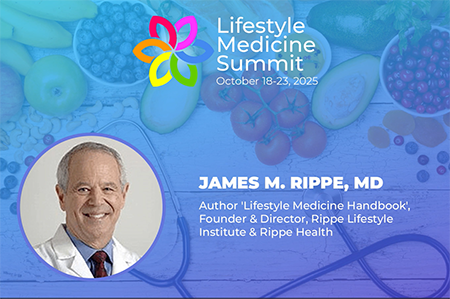
LIFESTYLE MEDICINE SUMMIT KEYNOTE PRESENTATION BY DR. JAMES RIPPE
Dr. Rippe gave the opening keynote speech on October 18th at the Lifestyle Medicine Summit sponsored by Lifestyle Prescriptions University.
The title of Dr. Rippe's presentation was "Lifestyle Medicine: Past, Present and Future." This speech was the opening presentation of the first day of the conference which was themed "Evidence-based Lifestyle Medicine."
Dr. Rippe spoke about the robust academic evidence that underlies lifestyle medicine. He emphasized that the evidence that underpins the key modalities in lifestyle medicine exists over many fields including medicine, exercise physiology, nutrition, psychology and many others.
Dr. Rippe commented that his initial impetus to write the first academic textbook in lifestyle medicine was based on the goal of bringing this literature together in one place so that physicians could have expeditious access to it.
The first edition of Dr. Rippe's academic textbook with the eponymous name "Lifestyle Medicine" actually named the field in the academic literature. Dr. Rippe emphasized that he and his organization, Rippe Lifestyle Institute (RLI), are involved in a series of academic endeavors including research, publications, and education. Dr. Rippe explained that the choice of the title for his initial book named "Lifestyle Medicine" came from the fact that there is overwhelming evidence that daily habits and actions along with regular physical activity, nutrition, weight management, avoiding risky substances, etc. profoundly impacts on the likelihood of developing various metabolic diseases.
According to Dr. Rippe "The key consideration in lifestyle medicine moving forward will be to continue to emphasize that the evidence behind lifestyle medicine is enormous and its impact is profound." The cornerstone of the World Health Organization program to lower the risk of non-communicable diseases embraces many of these lifestyle modalities.
Dr. Rippe's presentation was streamed live and viewed by over 50,000 health care professionals. To view Dr. Rippe's presentation, please click here.
Boston, Massachusetts
June 3, 2025
AMERICAN JOURNAL OF LIFESTYLE MEDICINE PUBLISHES
A LANDMARK PAPER ON GLP-1 THERAPY FOR OBESITY

The American Journal of Lifestyle Medicine (AJLM) was delighted to co-publish a paper by Mozaffarian et al entitled "Nutritional Priorities to Support GLP-1 Therapy for Obesity: A Joint Advisory from the American College of Lifestyle Medicine, the American Society of Nutrition, the Obesity Medicine Association and The Obesity Society."
Dr. James Rippe who is the Editor in Chief of AJLM commented that this article represented an important collaboration between four key organizations which are engaged in issues directly related to obesity and its treatment.
GLP-1 therapies are the most powerful obesity related pharmaceutical agents for obesity ever developed. Dr. Rippe and his team have conducted significant research in the area of obesity and also in the area of lifestyle medicine. The significance of this paper is that it combines state of the art knowledge in a powerful medication for obesity along with the key lifestyle modalities needed to assure not only short-term, but long-term therapy for obesity.
Worldwide 2.1 million individuals suffer from obesity and these numbers are projected to grow to 3.1 billion individuals by 2050. Obesity is strongly related to type 2 diabetes (T2DM) and cardiovascular disease (CVD) which makes it even more deadly and expensive to treat!
Pharmaceutical therapies which have been available in the past to treat obesity have typically only resulted in 5% to 10% of weight loss. This amount of weight loss is meaningful to create risk factor reduction but GLP-1 therapy is much more powerful. Short-term weight loss between 8% and 21% has been reported in well documented trials with GLP-1 in obese individuals and multiple clinical benefits have been demonstrated.
This important paper led by prominent researchers in nutrition, obesity management and lifestyle medicine places GLP therapy in its rightful place as an important component, but not the only solution to an overall approach to obesity therapy. As the authors point out "numerous practice guidelines recommend multi component evidence-based nutrition and behavioral therapy for patients with obesity." There are few such recommendations which physicians are typically following with GLP-1 therapies.
While the powerful GLP-1 therapies have made them increasingly prominent in obesity management, multiple challenges remain in real world settings. These include potential GI side effects, risk of inadequate nutrient intake from reduced food consumption and potential adverse consequences for body composition both in muscle and bone which often result in rapid short-term weight loss.
In addition, even though high adherence rates have been achieved in clinical research trials (often exceeding 80% of compliance), in real world settings the discontinuance rates of 50% to 67% at one year and up to 85% at two years have been reported. There are multiple potential reasons for these higher discontinuation patient rates in real world settings. These may include the high cost of these medications, GI side effects or in some instances, disappointing weight loss results.
As Dr. Rippe stated "The brilliance of the current paper by Mozaffarian et al. is to combine the phenomenal potential of GLP-1 therapies with the proven efficacy of lifestyle based therapies for obesity management such as healthy nutrition, regular physical activity and behavioral counseling."
Dr. Rippe has urged practitioners of lifestyle medicine to read this thorough, evidence-based paper and combine the benefits of GLP-1 therapy with proven behavioral techniques which are central to lifestyle.
Dr. Rippe has written an Editorial to accompany this paper entitled "Lifestyle Medicine and GLP-1 Therapy for Obesity: Time to Get Real." Dr. Rippe concludes by stating "there is no question that weight gain and obesity extract enormous tolls both for individual patients and the health of the world and its economy. The combined expertise of ACLM, ASN, the Obesity Medical Association and The Obesity Society to place GLP-1 therapy on firm footing along with important lifestyle factors offers an important opening to finally make substantial progress to combat this worldwide, devastating pandemic."
To access the paper published by AJLM and Dr. Rippe Editorial please click on the following links:
Lifestyle Medicine and GLP-1 Therapy For Obesity: Time to Get Real
Boston, Massachusetts
May 19, 2025

Dr. Rippe gives opening keynote address to "The Silver Health Lifestyle Science Popularization Conference," sponsored by the Sharejoy Health Group, in Nanjing City, Jangsu Province, China, March 17th, 2025
Dr. Rippe gave the opening keynote address on May 17th to the "The Silver Health Lifestyle Science Popularization Conference" which was sponsored by the Sharejoy Health Group. The Conference occurred in Nanjing City, Jiangsu Province, China. Dr. Rippe's talk was entitled "New Pathways to Global Healthy Aging – Lifestyle Medicine."
The Sharejoy Health Group has embraced the principles of lifestyle medicine with a particular emphasis on applying these principles to improve the health and longevity of the elderly population in China. An estimated 4-5 million individuals attended Dr. Rippe's opening keynote speech online.
Dr. Rippe's speech focused on the origins and development of the field of lifestyle medicine with an emphasis on its application for the benefit of the elderly population in China. According to Dr. Rippe:
"The elderly population is the most rapidly growing population in both China and the United States. People over the age of 65 can derive important and significant health and improved longevity benefits from employing the principles of lifestyle medicine including regular physical activity, plant forward nutrition, healthy weight management, avoidance of risky substances and positive connections with other people. I applaud the Sharejoy Health Group for embracing lifestyle medicine as a core operating principle for the company and, in particular, for its efforts to bring the benefits of lifestyle medicine to the elderly population of China."
The Sharejoy Health Group has utilized the 3rd Edition of Dr. Rippe's Lifestyle Medicine textbook which was recently translated into Chinese. This allowed them to gain perspective on the benefits of lifestyle medicine from Dr. Rippe who is considered the founder and leading researcher in this field.
Since its founding in 2007, Sharejoy Health Group has experienced exuberant growth. It is the largest enterprise employing the principles of lifestyle medicine for the benefit of the elderly population.
Dr. Rippe's research organization, Rippe Lifestyle Institute (RLI), was founded in 1995. Over the past 30 years RLI has published over 500 academic papers and abstracts, largely in the area of lifestyle medicine. Dr. Rippe has personally written or edited 60 books including 37 for medical professionals and 23 for the general public. Dr. Rippe named the field of "lifestyle medicine" with the 1st Edition of his major academic textbook with the eponymous name "Lifestyle Medicine." This textbook is now in its 4th Edition.
Dr. Rippe also serves as the editor in chief of the American Journal of Lifestyle Medicine, the only academic, peer reviewed journal in lifestyle medicine. In addition to being the Founder/Director of Rippe Lifestyle Institute Dr. Rippe serves as Professor of Medicine at the UMass Chan Medical School.
January 6, 2025
Boston, Massachusetts
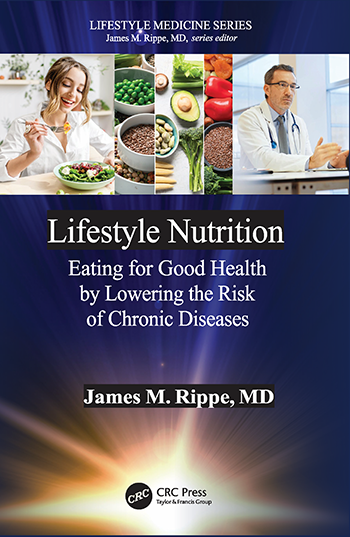
Publication of Dr. Rippe's Newest book Lifestyle Nutrition: Eating for Good Health by Lowering the Risk of Chronic Diseases
Rippe Lifestyle Institute is pleased to announce the publication of Dr. Rippe's newest academic textbook Lifestyle Nutrition: Eating for Good Health by Lowering the Risk of Chronic Diseases. This book is the latest volume in the Lifestyle Medicine Series for which Dr. Rippe serves as the Series Editor.
Lifestyle Nutrition provides robust evidence for the key role that healthy, (typically plant-based) nutrition plays both in the prevention and treatment of virtually every chronic disease. This is an area where Dr. Rippe has been a leading researcher.
As Dr. Rippe indicates, nutrition has undergone dramatic changes in the last decade. Unfortunately, most physicians find it daunting to keep up with the rapidly emerging field of nutrition science. Recent surveys suggest that 93% of physicians do not feel that they are adequately trained in nutrition. Even in Dr. Rippe's subspecialty of cardiology, over 90% of cardiologists feel they do not have adequate training to provide their patients with the most up-to-date nutritional guidance. As Dr. Rippe notes however, "it is reassuring that 95% of cardiologists agree that recommending healthy nutrition is imperative for our subspecialty and would welcome additional information in this area. I hope and believe that this current book will help fill some of these gaps."
Lifestyle Nutrition provides authoritative evidence in a wide variety of chronic metabolic conditions ranging from cardiovascular disease and diabetes to obesity management and even cancer and cognitive decline. In addition to providing information for clinicians in these areas, Lifestyle Nutrition also provides research based information in a variety of emerging nutrition related areas such as the microbiome, public policy, and planetary health. Sections on genetics, epigenetics and precision nutrition ae also included. Specialized areas include nutrition for children, nutrition for women's health and nutrition for physically active people and athletics.
In addition, utilizing his background as a lifestyle nutrition researcher, Dr. Rippe combines robust evidence in Lifestyle Nutrition with other key components of lifestyle medicine including physical activity, weight management, stress reduction, avoidance of risky substances, and positive relationships with other people.
Lifestyle Nutrition is available through amazon.com and multiple other sources of textbooks.
Boston, Massachusetts
November 4, 2024
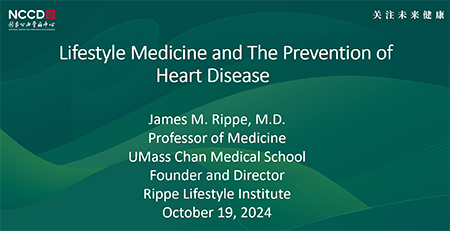
Dr. Rippe gives opening keynote address for Lifestyle Medicine and Cardiovascular Health Symposium in Beijing, China, October 19th, 2024
Dr. Rippe gave the opening keynote address entitled "Lifestyle Medicine and the Prevention of Heart Disease" for the Academic Symposium that was held in conjunction with the meeting of the 4th Annual China Healthy Lifestyle Medicine Conference.
In his presentation Dr. Rippe focused on the seven key components of lifestyle medicine including physical activity, healthy (plant based) nutrition, weight management, stress reduction, avoidance of addictive substances, healthy sleep and positive connections with others. Dr. Rippe tied each of these components to their role in lowering the risk or assisting in the treatment of cardiovascular disease. He also tied each of these lifestyle medicine components to the current conditions in China.
Dr. Rippe also emphasized that while there were many positive aspects of lifestyle medicine currently in China, there are some vulnerabilities as well. For example, the prevalence of obesity in China has tripled in the last twenty years. In addition, 25% of Chinese adults smoke cigarettes. Cigarette smoking breaks down clearly along gender lines. Only 2% of Chinese females smoke cigarettes, while 50% of Chinese males have this habit. Dr. Rippe emphasized that cardiovascular disease remains the leading cause of death in China, as it is in the United States.
The Healthy Lifestyle Medicine Conference and the accompanying Academic Symposia were viewed virtually by over 2.8 million people!
Dr. Rippe stated "It is an excellent step forward in lifestyle medicine in China that the Annual China Healthy Lifestyle Medicine Conference at Fuwai Hospital in Beijing, China was accompanied by multiple academic symposia. As a cardiologist I was particularly pleased to provide the opening keynote address on how lifestyle medicine can impact on both lowering the risk of heart disease and also assist in its treatment. This is a particularly relevant topic for the Fuwai Hospital, which is the largest cardiovascular hospital in the world. I believe this will represent the next step in the powerful and growing field of lifestyle medicine in China."
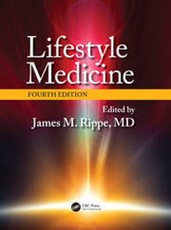
LIFESTYLE MEDICINE Fourth Edition
Edited By James M. Rippe Copyright 2024
Hardback 9781032129921
List: $400.00
e-Book 9781003227793
List: $400.00
1494 Pages 199 B/W Illustrations
August 29, 2024 by CRC Press
The fourth edition of Dr. James Rippe’s classic Lifestyle Medicine textbook continues to lead and inform the rapidly growing field of lifestyle medicine. This is the discipline that focuses on the impact of daily habits and actions on both short- and long-term health and quality of life.
There is no longer any serious doubt that daily habits and actions have a significant impact on multiple aspects of health.
This Textbook, edited by cardiologist Dr. James Rippe, a leading lifestyle medicine researcher, represents the combined wisdom and recommendations of over 325 experts in virtually every aspect of lifestyle medicine. Chapter authors have been chosen for their background as leaders in various aspects of lifestyle medicine.
The fourth edition of this classic text continues to serve as the leading, comprehensive textbook in lifestyle medicine. The original has been called the “indispensable bible” of lifestyle medicine, and the fourth edition of this work continues to justify this designation.
The easiest way to make a discounted purchase is on our website https://www.routledge.com/9781032129921.
Access a 30% discount with the Promo Code – JMR30 when purchasing on our web site. Follow the link or QR Code to the book and you may add the Promo Code – JMR30 to the order in your shoppng cart. Order by November 30, 2024 or contact specialsales@taylorandfrancis.com

August 28, 2024
Shrewsbury, MA
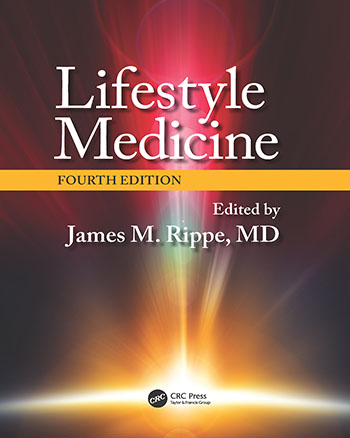
4TH EDITION OF LIFESTYLE MEDICINE TEXTBOOK
Rippe Lifestyle Institute is pleased to announce the publication of Dr. Rippe’s most recent textbook Lifestyle Medicine (4th edition) which was published in August 2024.
The 4th edition of Lifestyle Medicine continues the tradition of this major textbook.In the first edition of Lifestyle Medicine, Dr. Rippe coined the term "lifestyle medicine" in the academic literature. Now, with the 4th edition, the field continues to expand and grow. The 4th edition has 325 contributors who are experts in virtually every field of lifestyle medicine.
Dr. Rippe is a cardiologist and lifestyle medicine researcher who has led the way in recognizing how lifestyle habits and practices can be integrated into good health and prevention of disease. The field of lifestyle medicine has grown exponentially around the world. Lifestyle medicine practices are now incorporated in virtually every evidence based expert recommendation for various metabolic diseases including cardiovascular disease, diabetes, obesity, and even cancer and cognitive decline. In addition, lifestyle medicine practices form the cornerstone for the World Health Organization initiative to combat non-communicable diseases which WHO states results in 74% of all annual mortality.
Within the United States, the American College of Lifestyle Medicine has continued its phenomenal growth and now has almost 12,000 members. Dr. Rippe was honored to receive the "Trail Blazer" Award for his work in lifestyle medicine from ACLM in November 2023.
The power of the lifestyle medicine message around the world was exhibited when Dr. Rippe gave the opening keynote address for the third annual lifestyle medicine conference in China in 2023. His address was viewed virtually by over 2.5 million individuals!
The 4th edition of Lifestyle Medicine continues to be the only peer reviewed major textbook spanning the field of lifestyle medicine. According to Dr. Rippe "It is critically important that lifestyle medicine be based on the principles of firm evidence. This book draws on the expertise of top scientists and physicians in every area of lifestyle medicine. This textbook will continue to lead and define the field of lifestyle medicine. I am proud of the work that my team and I at Rippe Lifestyle Institute continue to perform to advance the science of lifestyle medicine. This is the most important area in modern health care around the world."
The fourth edition of Lifestyle Medicine is divided into 22 sections related to diverse aspects of lifestyle medicine. All chapters have been fundamentally rewritten or substantially revised and brought up to date with current evidence and understanding of practices.
According to Dr. Rippe "it is critically important that we engage the medical community in using the vast knowledge in the area of lifestyle medicine to lower the risk of chronic disease and/or assist in its treatment. Currently only 40% of physicians are discussing these issues with their patients which is a missed opportunity since over 70% of people see their primary care physician at least on an annual basis."
Other publication efforts and interests for Dr. Rippe include his role as the Editor in Chief of the American Journal of Lifestyle Medicine and the Series Editor for the Lifestyle Medicine Series, which is a grouping of smaller, soft covered books in the area of lifestyle medicine.
The 4th edition of Lifestyle Medicine is available both from the Routledge/Taylor and Francis Group at https://www.routledge.com/ and also on Amazon.com. This edition represents the 61st book that Dr. Rippe has either edited or written either for the health care professionals or the public at large.
Denver, CO
DR. JAMES RIPPE RECEIVES "TRAIL BLAZER" AWARD FROM THE AMERICAN COLLEGE OF LIFESTYLE MEDICINE
The American College of Lifestyle Medicine has honored renowned cardiologist and Lifestyle Medicine leader, Dr. James Rippe, with its prestigious "Trail Blazer" award. The announcement came at ACLM’s National meeting in Denver, Colorado Oct 31, 2023.
The Trailblazer award recognizes Dr. Rippe's pioneering work over many years to develop the field of Lifestyle Medicine. It all began with the first edition of Dr. Rippe's multi-authored landmark textbook, Lifestyle Medicine, which is still the only comprehensive academic textbook of its kind in the field (Lifestyle Medicine, 4th Edition, CRC Press to be published in 2024). The textbook was first published in 1999 when Dr. Rippe named the field "Lifestyle Medicine" in the academic literature, and inspired the formation of the American College of Lifestyle Medicine by 2004. The early review of the textbook in the Journal of the American Medical Association stated, "This book should be owned by every doctor in America."
Dr. Rippe continues to be a prolific author in the field of Lifestyle Medicine, having personally edited or written 60 books including 37 for healthcare professionals and 23 for the general public. Dr. Rippe also serves as Editor-In-Chief of the American Journal of Lifestyle Medicine which is the only peer-reviewed journal in Lifestyle Medicine.
He is also the Series Editor for the Lifestyle Medicine Series which is a group of smaller single topic books in various specific aspects of Lifestyle Medicine. Additionally, Dr. Rippe’s research laboratory has published over 500 academic articles and abstracts within the scientific literature largely in the areas of physical activity, nutrition, healthy weight management and avoiding addictive substances. All of these are components of the overall approach to Lifestyle Medicine.
Accepting the Trail Blazer award, Dr. Rippe said, "I am honored to receive this prestigious award. While I am the recipient of this award, there are many other trail blazers within the American College of Lifestyle Medicine including its Executive Director, Susan Benigas, the ACLM Board of Directors, and the current President of ACLM, Dr. Beth Frates. Without the leadership and trail blazing efforts of these individuals, ACLM would not be the thriving academic organization that it is today." Dr. Rippe then called on the audience to give these individuals a standing ovation. Continuing, Dr. Rippe said, "Indeed, all members of the American College of Lifestyle Medicine are essentially "trail blazers" since they bring passion and commitment to a new and important message in the field of medicine about how daily habits and actions profoundly impact both short- and long-term health and quality of life. The message of lifestyle medicine has begun to have a significant impact on all levels of American medicine and public policy. It is also a key component motivating the World Health Organization's current initiative to combat non-communicable diseases which account for over 71 percent of all mortality worldwide each year." Dr. Rippe concluded, "The future of lifestyle medicine around the world is indeed very bright. I am honored to have played a role in initiating this movement."
The video of Dr. Rippe’s acceptance speech for the Trail Blazer award may be viewed under, "Dr. Rippe's Videos" on the website.
Shenzhen, Guangdong, China
November 5, 2023
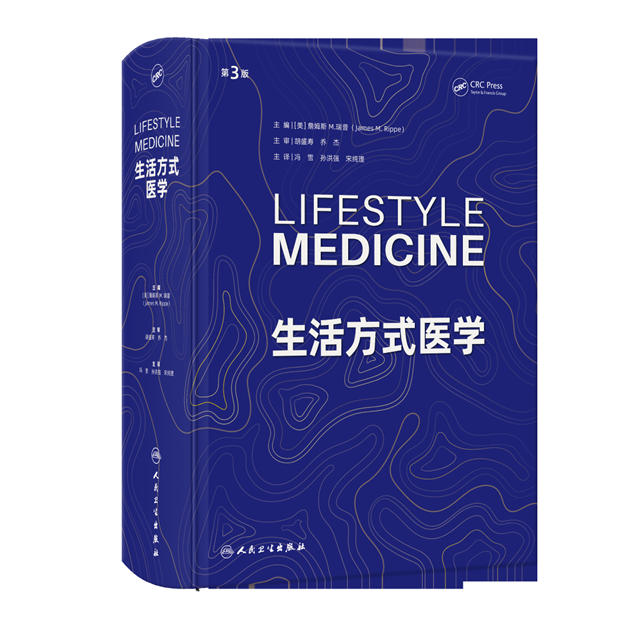
CHINESE TRANSLATION OF DR. JAMES RIPPE’S 3RD EDITION OF LIFESTYLE MEDICINE TEXTBOOK UNVEILED AT CONFERENCE
Renowned cardiologist Dr. James Rippe’s landmark Lifestyle Medicine textbook (3rd edition) is now available and accessible in the Chinese language. This outstanding development was unveiled during the 3rd Annual China Lifestyle Medicine Conference in Shenzhen, Guangdong, China November 1-5, 2023.
The translation of Dr. Rippe’s comprehensive academic textbook into Chinese required over 100 individuals working for most of a year. Initial copies of the Chinese translation were given to a variety of senior healthcare and high-level government officials as part of the Chinese conference. The full publication of the Chinese translation of Dr. Rippe’s Lifestyle Medicine will be available in December 2023.
Dr. Rippe says, "I am delighted that the information in the 3rd Edition of my Lifestyle Medicine will now be widely available to both healthcare providers and government officials throughout China. There will be some nuance differences between how lifestyle medicine is practiced in the United States and how it will ultimately be practiced in China. However, this textbook provides the core knowledge about how key lifestyle modalities such as regular physical activity, healthy nutrition, weight management, avoidance of addictive substances such as tobacco and alcohol as well as stress reduction, sleep and positive relationships with others can play a major role in improving both the short- and long-term health and quality of life of individuals throughout China. I am delighted that this information will provide key strategies for the important "Healthy China" initiative which is currently underway in China. My research organization, Rippe Lifestyle Institute, and I look forward to working together with our Chinese colleagues to continue to advance the field of Lifestyle Medicine throughout China and the rest of the world."
Shenzhen, Guangdong, China
November 5, 2023
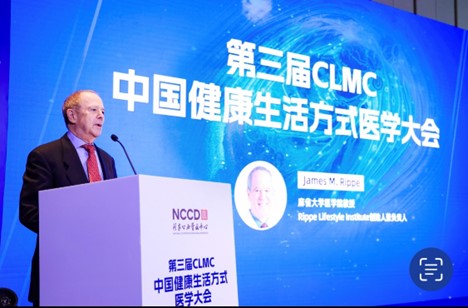
DR. JAMES RIPPE DELIVERS KEYNOTE ADDRESS AT THE 3rd ANNUAL CHINA LIFESTYLE MEDICINE CONFERENCE
Dr. James Rippe traveled to Shenzhen, Guangdong, China to deliver the Keynote Address for the 3rd Annual China Lifestyle Medicine Conference. Dr. Rippe's presentation focused on the past, present and future of Lifestyle Medicine with particular reference to China.
Dr. Rippe's speech and the conference were viewed by over 2.5 million people online. In addition to Dr. Rippe's speech, the conference featured an unveiling of the Chinese translation of the 3rd Edition of Dr. Rippe's Lifestyle Medicine textbook, the only comprehensive, academic textbook of its kind in the field.
Dr. Rippe focused his comments on how various modalities in lifestyle medicine including regular physical activity, healthy nutrition, weight management, quality of sleep, stress reduction, avoidance of tobacco, alcohol and other addictive substances, and positive relationships with other individuals can generate enormous health benefits for the Chinese public.
Dr. Rippe stated, "Lifestyle medicine modalities can play a very significant role in the health of Chinese people. We know that cardiovascular disease remains the leading cause of mortality in China and worldwide. Obesity has also increased significantly in China over the past thirty years. Cigarette smoking remains an issue in China particularly in the male population. My comments and the information contained in the 3rd Edition of my Lifestyle Medicine textbook will serve as components of the important "Healthy China" Initiative which is now under way."
Dr. Rippe concluded, "It has been a great honor to deliver this keynote speech. My organization, Rippe Lifestyle Medicine, looks forward to ongoing opportunities to collaborate with the Center for Healthy Lifestyle Medicine in China to improve the health of the Chinese people."
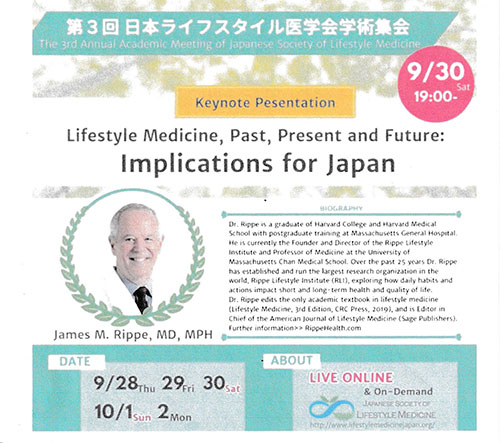
Oct 1, 2023
LIFESTYLE MEDICINE IN JAPAN
"Japanese culture naturally has many healthful benefits which affords its people an enviable quality of life not seen in many other societies."
That’s the Lifestyle Medicine message proclaimed by James M. Rippe, M.D., renowned U.S. cardiologist, in the opening keynote address to the Japanese Society of Lifestyle Medicine’s annual meeting on September 30, 2023, in Tokyo, Japan.
Dr. Rippe praised Japanese culture for embodying many of the principles of lifestyle medicine which have been demonstrated to lower the risk of chronic disease and improve both short and long-term health and quality of life. For example, Japanese culture emphasizes regular physical activity. People particularly enjoy walking and do not consider it to be a burden or require special facilities. Japanese enjoy regular physical activity and, because of this, the prevalence of sedentary living in Japan is very low at less than 10%.
According to Dr. Rippe, there is also a positive emphasis on healthy nutrition. The Japanese diet is replete with fish and a variety of different vegetables. As a result of healthy nutrition and regular physical activity, weight management in Japan is much better than many other countries and substantially better than in the United States. For example, less than 4% of adults in Japan are obese compared to over 40% of individuals in the U.S. who are obese, and over 70% of individuals in the U.S. who are either overweight or obese. When Japanese travel to Hawaii or California, however, unfortunately sometimes they will adopt Western style behaviors which result in increased prevalence of overweight and obesity.
Sleep is another important aspect of lifestyle medicine, notes Dr. Rippe. In the U.S., over 40% of individuals report they have difficulties in various aspects of sleep. The American Journal of Lifestyle Medicine, which is edited by Dr. Rippe, recently published an article reporting that Japanese college students found that healthy sleep was the most important single aspect of lifestyle medicine for good physical and mental health and stress reduction.
Positive connections with others is another valuable aspect of lifestyle medicine, says Dr. Rippe. This has always been a key component of the overall Japanese culture and one of the reasons why Japan leads the world in longevity for both men and women. However, there is some concern raised recently about the level of loneliness in Japan. This is true in the United States as well. Japan has taken some steps in this area by appointing a Loneliness Officer within the government.
In his keynote address, Dr. Rippe challenged members of the Japanese Society of Lifestyle Medicine to build on the positive aspects of Japanese culture around lifestyle medicine and continue to make important advances in this area in the future.
Dr. Rippe also commented on his personal affinity for Japanese culture. This is manifest by the fact that Dr. Rippe has traveled to Japan on a number of different occasions. For example, many years ago he delivered a keynote address to the Japan Heart Foundation on the health benefits of walking. In addition, Dr. Rippe has a black belt in Okinawan karate and tries to live his life according to the principles of bushido. Dr. Rippe has also prominently featured numerous Japanese maples and cherry trees as well as multiple other Japanese trees and bushes in the landscaping of his properties, as well as water elements. These features underscore the beauty and power of nature and represent a very important component of Japanese culture including forest walking and forest bathing.
Dr. Rippe closed by stating that Rippe Lifestyle Institute looks forward to collaborating with the Japanese Lifestyle Medicine Society and personally hopes to visit Japan sometime in the near future.
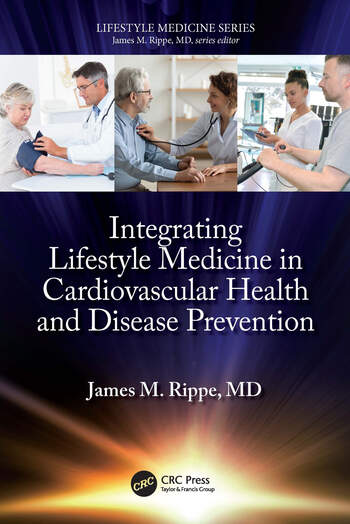
January 9, 2023
Integrating Lifestyle Medicine in Cardiovascular Health and Disease Prevention
Rippe Lifestyle Institute is delighted to announce the publication of Dr. Rippe’s most recent book Integrating Lifestyle Medicine in Cardiovascular Health and Disease Prevention.
As a cardiologist and lifestyle medicine researcher, Dr. Rippe has led the way in recognizing how lifestyle habits and practices can be integrated into cardiology to help lower the risk of all forms of heart disease. Cardiovascular disease (CVD) remains the leading cause of morbidity and mortality in the United States and around the world. Major risk factors for CVD result from poor lifestyle habits and practices. The area of lifestyle medicine has emerged to help clinicians and their patients understand the power of positive lifestyle habits and actions to lower the risk of CVD or help treat it if it is already present.
This book provides evidence based information on both the prevention and treatment of CVD through lifestyle measures such as regular physical activity, sound nutrition, weight management and avoidance of tobacco products. This user-friendly volume provides protocols for overcoming a sedentary lifestyle, utilizing lifestyle medicine techniques to optimize cardiovascular health, brain health and lower the risk of multiple, chronic disease such as diabetes and cancer.
According to Dr. Rippe, "The time has come to fully integrate lifestyle medicine practices and procedures into all forms of medicine, but particularly into cardiology. As a cardiologist I have been dismayed that a recent survey suggested that over 90% of cardiologists did not feel they had adequate training in the area of nutrition. We also know that less than 40% of physicians routinely counsel their patients on lifestyle habits and actions and their impact on chronic disease. I hope that this book will encourage more physicians to take an active role in utilizing the power of daily habits and actions to lower the risk of cardiovascular disease."
This book is designed for practitioners at all levels and is the most recent volume in the Lifestyle Medicine Series, where Dr. Rippe serves as the Series Editor. The books in this Series, include volumes on Increasing Physical Activity, Obesity Prevention and Treatment, Empowering Women’s Health across a Lifespan, Lifestyle Principles and Nursing Practice and a Manual of Lifestyle Medicine. Future books will include volumes on Diabetes, Pre-Diabetes and Metabolic Syndrome as well as a volume on Lifestyle Medicine through the Lens of Psychiatry. These books are designed for individuals who have a specific interest in the area of lifestyle medicine or who are early in their careers and not able to afford Dr. Rippe’s definitive Lifestyle Medicine (3rd Edition) textbook.
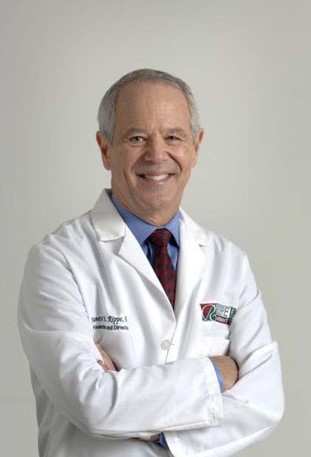
January 19, 2022
Later this winter, Dr James Rippe, MD will give a Special Guest Lecture sponsored by Fu Wai Hospital, Beijing, China entitled "The Future of Lifestyle Medicine"
Dr. Rippe has been invited to give a special guest lecture in conjunction with the Second Chinese Lifestyle Medicine conference sponsored by the Fu Wai Hospital. This speech will be delivered at the Peninsula Hotel in Beijing.
The speech is entitled, "The Future of Lifestyle Medicine." The speech will elucidate multiple aspects of lifestyle medicine and how important they are to lowering the risk of multiple chronic diseases including heart disease, diabetes, cancer, dementia, and metabolic syndrome.
These issues are important throughout the world and particularly important to China. The Fu Wai Hospital has inaugurated the Conference for Healthy Lifestyle Medicine as part of its initiative to establish the first Center for Healthy Lifestyle Medicine in China.
In conjunction with this conference, the Fu Wai Hospital has purchased the Chinese translation rights to Dr. Rippe's major academic textbook, Lifestyle Medicine (3rd Edition, CRC Press, 2019).
The Chinese Lifestyle Medicine conference has been a very important component of launching lifestyle medicine in China. The first Healthy Lifestyle Medicine conference was attended by over 600,000 individuals throughout China and Internationally. Dr. Rippe's speech will focus not only on lifestyle medicine issues around the world but will have a particular emphasis on how lifestyle medicine modalities can play a very significant role in advancing the Center for Healthy Lifestyle Medicine in China and the whole field of lifestyle medicine.
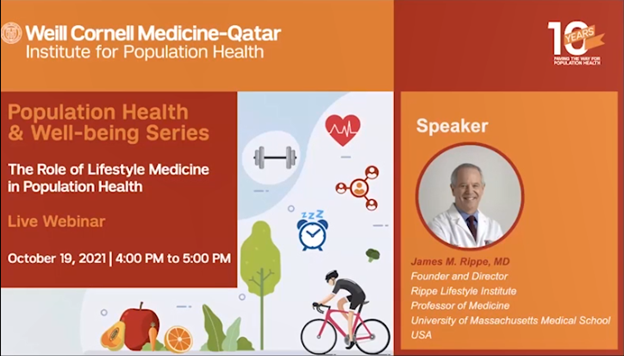
On October 19, 2021, Dr James Rippe, MD gave a Keynote Speech in Doha, Qatar sponsored by the Weill Cornell Qatar Institute for Population Health entitled "Role of Lifestyle Medicine in Population Health"
Rippe Lifestyle Institute is pleased to announce that Dr. Rippe gave a keynote speech on the "Role of Lifestyle Medicine in Population Health" in Doha, Qatar as part of a series of lifestyle medicine presentations sponsored by the Weill Cornell Qatar Institute for Population Health.
In this speech Dr. Rippe emphasized that the world is experiencing an epidemic of noncommunicable diseases. He underscored that lifestyle medicine measures are profoundly important to low the risk of chronic diseases and improve short- and long-term health and quality of life.
Dr. Rippe focused on key pillars of lifestyle medicine including regular physical activity, healthy nutrition, weight management, avoiding cigarette smoking, or tobacco exposure, obtaining healthy sleep, reducing stress, and maintaining positive relationships with others. He also discussed the application of lifestyle medicine principles to specific diseases to lower risk factors including cardiovascular disease, diabetes, metabolic syndrome, obesity, infectious diseases including COVID-19, Alzheimer's Disease and dementia.
The speech was widely attended and has now been placed on the Weill Cornell Qatar Institute Population Health website where it will be available to physicians throughout Qatar and the rest of the Middle East.
Dr. Rippe has given frequent presentations to international audiences over the last two decades including multiple presentations in China, Japan, Korea, Australia, South Africa, the Middle East, and multiple European cities. In addition, Dr. Rippe has given numerous presentations and coordinated symposia at multiple academic conferences in the United States.
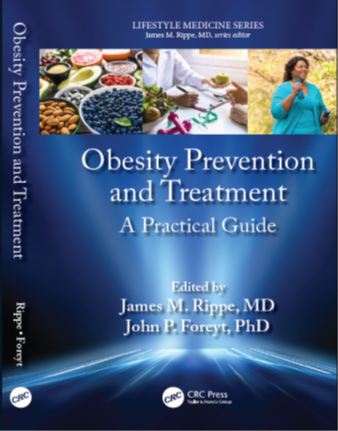
September 15, 2021
Obesity Prevention and Treatment: A Practical Guide
Rippe Lifestyle Institute is pleased to announce the publication of Obesity Prevention and Treatment: A Practical Guide edited by Dr. James Rippe and Dr. John Foreyt. This book is the latest volume in the Lifestyle Medicine Series where Dr. Rippe serves as the series editor.
The World Health Organization estimates that there are 2.1 billion individuals globally with obesity. Over 73% of adults in the United States are overweight or obese. The average individual with obesity cuts 10 years off of their life expectancy yet less than 40% of physicians routinely counsel individuals concerning the adverse health consequences of obesity.
Obesity Prevention and Treatment: A Practical Guide provides evidence-based information and equips healthcare practitioners to include effective weight management counseling in the daily practice of medicine. The book is written by lifestyle medicine pioneer and cardiologist, Dr. James Rippe and Obesity expert, Dr. John Foreyt and colleagues.
Obesity Prevention and Treatment: A Practical Guide provides evidence-based information about the prevention and treatment of obesity through lifestyle measures such as regular physical activity and sound nutrition as well as the use of new medications and/or bariatric surgery available to assist in weight management. The book contains information and provides a framework of practical strategies to assist medical practitioners in safe and effective treatments for obesity.
In addition, Obesity Prevention and Treatment: A Practical Guide explains the relationship between obesity and increased risk of heart disease, diabetes, cancer, osteoarthritis, and other chronic conditions.
Each chapter begins with bulleted points and concludes with a brief list of clinical applications. This book is written for health care professionals of all levels and provides user friendly evidence-based guidelines for obesity prevention and treatment which should prove valuable to practitioners of lifestyle medicine, general medicine and subspeciality practices.
Obesity Prevention and Treatment: A Practical Guide is available on Dr. Rippe's amazon.com page or through the rippehealth.com website and widely through booksellers around the world.
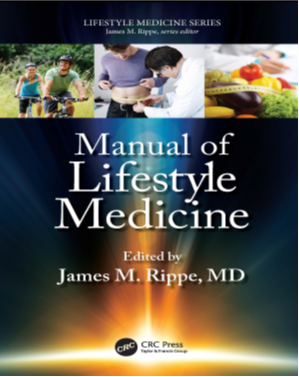
July 1, 2021
Manual of Lifestyle Medicine
Rippe Lifestyle Institute is pleased to announce the publication of Dr. Rippe's new book, the Manual of Lifestyle Medicine.
The fundamental premise of lifestyle medicine is that daily habits and actions profoundly impact on short- and long-term health and quality of life. Dr. Rippe has been the leading researcher in the area of lifestyle medicine and indeed coined the term "lifestyle medicine" to describe the discipline of studying lifestyle habits and risk factor reduction and health. With this new book, Dr. Rippe provides a clinically oriented, evidence-based examination of key lifestyle factors and how to prescribe them to individuals of all ages.
The Manual of Lifestyle Medicine is written for professionals working at all levels of medical and healthcare practice. It summarizes the major components of lifestyle medicine ranging from physical activity and nutrition to weight management and avoidance of tobacco products. The Manual includes clinical guidelines and practices for using lifestyle medicine principals to lower the risk of numerous chronic conditions. The Manual also provides guidance on behavior change, approaches to lowering the risk of multiple chronic diseases including coronary heart disease, diabetes, the metabolic syndrome, cancer, and dementia.
The Manual of Lifestyle Medicine also contains sections on the treatment of addiction and injury prevention as well as an extensive section on key concepts in behavioral medicine. This book provides a brief although thorough and evidence-based and clinically oriented approach to lifestyle medicine. It will be best be used in conjunction with Dr. Rippe's major academic textbook, Lifestyle Medicine, (CRC Press, 2019).
According to Dr. Rippe, the intent of the Manual of Lifestyle Medicine is to provide an entry point for individuals who are contemplating utilizing lifestyle medicine in their clinical practice or individuals who are starting their medical careers and not quite ready to purchase the larger academic textbook.
"There is no longer any serious doubt what each of us does in our daily lives profoundly impacts our health" stated Dr. Rippe. "This is also a basis for the major initiative from the World Health Organization to combat noncommunicable diseases. The WHO has declared that 71% of all mortality outcomes from noncommunicable diseases. The WHO initiative correlates very well with basic precepts of lifestyle medicine."
The Manual of Lifestyle Medicine is widely available through books sellers around the world. It can also be obtained by visiting Dr. Rippe's amazon page.
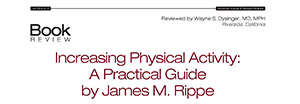
In the early days of the lifestyle medicine movement, there was debate as to whether the key tenants of lifestyle medicine should be organized around specific diseases, as most of modern medicine has been arranged, or structured around the core lifestyle interventions such as nutrition and physical activity.
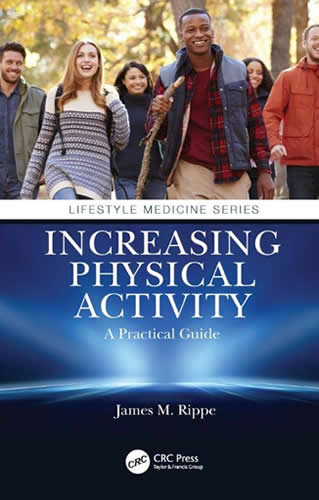
November 23, 2020
Increasing Physical Activity: A Practical Guide
Rippe Lifestyle Institute is pleased to announce the publication of Dr. Rippe’s new book Increasing Physical Activity: A Practical Guide.
Dr. Rippe has been a leading voice for the health promoting benefits of regular physical activity for many years. Early work by Dr. Rippe and the RLI research team resulted in over 30 academic publications in the area of walking and health as well as five books for the consumer. This work has been credited with sparking the Modern American Walking Movement. Nanci Hellmich from USA Today dubbed Dr. Rippe “the Father of the American Walking Movement.”
Dr. Rippe’s current book Increasing Physical Activity: A Practical Guide is aimed largely at physicians and other health care workers with the goal of encouraging all health care workers to include recommendations for increased physical activity in every clinical encounter
As Dr. Rippe notes, only 1/5 of adults in the United States get enough physical activity to meet guidelines from the Centers for Disease Control. The health benefits of regular physical activity are beyond dispute yet less than 40% of physicians routinely counsel their patients on the importance of physical activity
“As a regular practitioner of physical activity in my own life and as a researcher in this area, I felt it was important to create a user-friendly and motivational guide to encourage health care workers to increase physical activity counseling in their daily practices” said Dr. Rippe. “The literature supporting the health benefits of regular physical activity is overwhelming. Regular physical activity can lower the risk of heart disease, diabetes, metabolic syndrome, arthritis, and many cancers. In addition, regular physical activity can improve cognition and lower the risk of dementia.”
Dr. Rippe’s new book also focuses on the importance of physical activity throughout the life cycle starting with infants and children and extending to individuals over the age of 65.
Increasing Physical Activity: A Practical Guide also focuses on Dr. Rippe’s long-term interest in lifestyle medicine. Indeed Dr. Rippe coined the term “lifestyle medicine” in the academic literature with the publication of his first book by that name in 1999. This multi-authored academic textbook edited by Dr. Rippe was published in its third edition in 2019.
Dr. Rippe is a cardiologist and prolific researcher in multiple areas of cardiovascular disease and lifestyle medicine. Dr. Rippe and his team at Rippe Lifestyle Institute have published over 500 academic papers and abstracts and Dr. Rippe has personally written or edited 56 books (33 books for health care workers and fellow physicians and 23 books for the general public).
Dr. Rippe’s new book Increasing Physical Activity: A Practical Guide is available through Dr. Rippe’s amazon.com page and widely amongst book sellers throughout the world.

October 1, 2019
DR. JAMES RIPPE OFFERED POSITION AS PROFESSOR OF MEDICINE AT THE UNIVERSITY OF MASSACHUSETTS MEDICAL SCHOOL
Dr. Rippe has been offered and accepted a position as Professor of Medicine at the University of Massachusetts Medical School.
Dr. Rippe has indicated that "this position will allow me to continue emphasizing the evidence that supports lifestyle medicine to a broad range of medical students, physicians in training and fellow faculty members at the prestigious medical school. Additionally, this allows for an enhanced platform to serve consumer product organizations who seek fact based research in the health and wellness arena. I am delighted to accept this role."
Exemplary Book Review
Lifestyle Medicine, Third Edition
Editor, James M. Rippe, MD
The field of lifestyle medicine, which is the study of how daily habits and actions impact on both short- and long-term health and quality of life, continues to expand globally. The scientific and medical literature that supports the success of these lifestyle habits and actions is now overwhelming. Thousands of studies provide evidence that regular physical activity, maintenance of a health body weight, following sound nutritional practices, stress reduction, and other good practices all profoundly impact both health and quality of life.
Click here to read the review
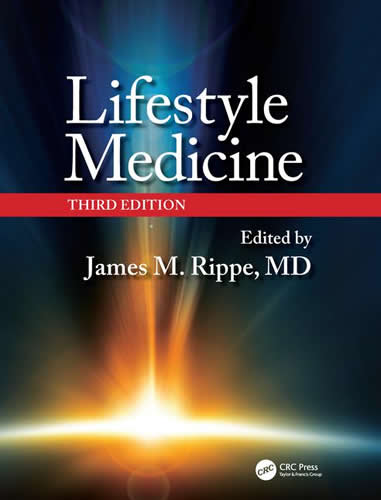
Lifestyle Medicine, Third Edition
(May 2019)
The field of lifestyle medicine, which is the study of how daily habits and actions impact on both short- and long-term health and quality of life, continues to expand globally. The scientific and medical literature that supports the success of these lifestyle habits and actions is now overwhelming. Thousands of studies provide evidence that regular physical activity, maintenance of a health body weight, following sound nutritional practices, stress reduction, and other good practices all profoundly impact both health and quality of life.
Following its predecessors, Lifestyle Medicine, Third Edition, is edited by lifestyle medicine pioneer, cardiologist Dr. James Rippe. This 1800-page edition has been thoroughly updated and represents the expert opinions of 20 section editors as well as more than 150 expert chapter authors whose knowledge span all aspects of this emerging discipline. Topics cover lifestyle medicine practices including regular physical activity, proper nutrition, and weight management. These principles are applied to the prevention and or treatment of a wide variety of chronic conditions ranging from heart disease and diabetes to cancer, mental health, addiction, and injury prevention.
This book serves as evidence base for individuals who wish to practice lifestyle medicine or incorporate some of its principles into either general medicine or subspecialty practice. It provides valuable information to healthcare workers in the fields of nutrition, exercise physiology, psychology, behavioral medicine, health promotion, and public policy where lifestyle medicine principles play an ever-increasing role.
September 26, 2018
American Journal of Lifestyle Medicine Accepted at PubMed Central (PMC)
The American Journal of Lifestyle Medicine (AJLM) which has been edited from its inception10 years ago by cardiologist, Dr. James Rippe has now been accepted at PubMed Central (PMC). PMC along with Medline sit on the PubMed umbrella which comprises more than 27 million citations of the biomedical literature. PMC is a full text archive of indexed articles and abstracts searchable in PubMed and full text articles on the PMC website. AJLM can be accessed by using the following link https://www.ncbi.nlm.nih.gov/pmc/journals/3524/
"Acceptance at PMC is an important milestone in the history of the American Journal of Lifestyle Medicine" according to Dr. Rippe. "The process to be accepted for PMC is quite arduous. To be considered a journal must submit at least 25 peer-reviewed articles and have detailed ethical statements, submission guidelines etc. The journal must also have been published for at least five years before it can even apply for acceptance to PMC."
The American Journal of Lifestyle Medicine has continued to grow and thrive as has the lifestyle medicine movement. Last year, AJLM had over 10,000 subscribers and had over 70,000 articles downloaded.
Dr. Rippe is also editor of the only multi-authored academic textbook in lifestyle medicine (Lifestyle Medicine, CRC Press; 3rd edition to be published in spring, 2019). He is the Founder and Director of Rippe Lifestyle Institute, a large research organization devoted to studying the impact of physical activity, nutrition, and weight management on health and quality of life. Dr. Rippe has authored or co-authored over 500 academic publications.
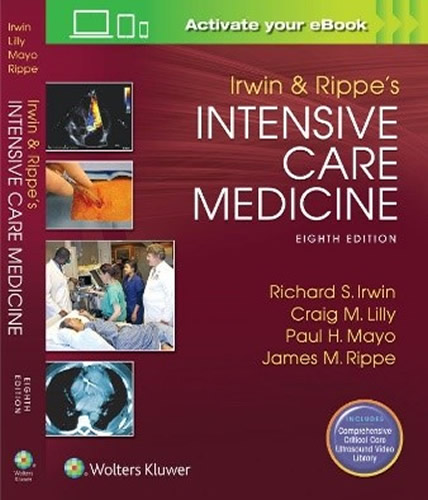
Irwin & Rippe’s Intensive Care Medicine (Eighth Edition)
(February 2018)
James M. Rippe, M.D. and Rippe Health are pleased to announce the publication of the eighth edition of Irwin & Rippe’s Intensive Care Medicine (Lippincott Williams and Wilkins 2018).
Dramatic changes have occurred in virtually every area of critical care since the first publication of Irwin & Rippe’s Intensive Care Medicine in 1985. Each of the prior seven editions of this textbook have defined state of the art research, knowledge and technologies in ICU Medicine. The eighth edition provides an interprofessional emphasis on anesthesia, surgery, trauma, neuro and cardiovascular, as well as medical intensive care, with strong collaboration across all these disciplines. With a focus on evidence-based, state-of-the-art information throughout, the eighth edition offers authoritative guidance to the wide variety of specialty physicians and non-physicians practicing in the adult intensive care environment.
Evidence-based medicine continues to play an ever-more prominent role in all branches of medicine including critical care. The book includes recommendations that specifically reflect recent trials with a particular emphasis on prospective, randomized controlled trials. This evidence has been summarized by authors along with helpful tables.
Important changes and advances have occurred in intensive care medicine since the last edition. These changes include managing our ICUs according to the following guidelines:
- Making our ICUs safer for our patients
- Decreasing variability by following clinical practice guidelines based on the best available evidence to ensure better outcomes for our patients
- Doing more with less by choosing wisely to decrease the cost of caring for our patients
The eighth edition also emphasizes managing cardiovascular problems and providing coronary care in this day and age, the advances of surgical critical care, shock and trauma, including new therapies and techniques in a variety of conditions treated in this environment. Pharmacology, overdoses, and poisoning span 30 chapters essentially represented a textbook within a larger book. Basic pathophysiology discussions are also included and are guided and supplemented by extensive references to assist clinicians and researchers who may wish to pursue more in-depth knowledge of these important areas.
Irwin & Rippe’s Intensive Care Medicine is the leading ICU textbook in the world. It has over 200 contributors and is over 2,200 pages of double column text. Dr. Rippe originally developed this textbook in collaboration with other individuals when he joined the faculty at UMass Medical School many years ago. It is the flagship of a family of books that Dr. Rippe edits, along with Dr. Richard Irwin, in intensive care including this book as well as Irwin and Rippe’s Manual of Intensive Care Medicine, and Irwin and Rippe’s Procedures, Techniques and Minimally Invasive Monitoring in the Intensive Care Medicine.
Irwin & Rippe’s Intensive Care Medicine (Eighth Edition) also has an electronic version and multiple ultrasound images which are available at amazon.com. Purchasing the book includes a complimentary download of the enhanced eBook for IOS, Android, PC & Mac.
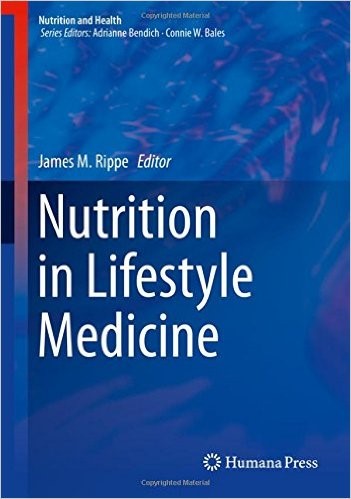
Nutrition in Lifestyle Medicine
Emphasizes nutritional considerations related to obesity, diabetes, cardiovascular disease
(January 12, 2017)
James M. Rippe, M.D. and Rippe Health are pleased to announce the publication of Nutrition in Lifestyle Medicine (2017 Springer).
This newest addition to the Nutrition and Health series focuses on nutrition’s key role in lifestyle interventions to prevent and manage diseases. The book pays particular attention to nutritional considerations related to obesity, diabetes, and cardiovascular disease.
Edited by cardiologist, Dr. James Rippe, a well-known expert in the emerging specialty of Lifestyle Medicine, Nutrition in Lifestyle Medicine will also focus on a variety of specialized areas such as nutrition for athletes and physically active individuals, hydration, and nutrition throughout the life cycle (spanning from children to individuals over the age of 60). In addition, chapters include controversies in nutrition, such as health effects of added sugars and saturated fatty acids in the diet. Finally, specialized chapters include such areas as nutrition for women, nutrition for men, nutrition for Latinos, the use of supplements, communication about nutrition, public policy issues, and the interface between nutrition and physical activity.
Lifestyle Medicine, supported by the American Journal of Lifestyle Medicine, also edited by Dr. Rippe, Dr. Rippe’s textbook Lifestyle Medicine (CRC Press, 2013) and American College of Lifestyle Medicine (ACLM), is a new national medicine specialty that stresses the use of lifestyle interventions in the treatment and management of disease. Its practitioners effectively manage medical treatments alongside the lifestyle interventions, for example lowering insulin treatment for patients with diabetes, reducing the dose of anti-hypertension medications for people with hypertension, and prescribing certain medical interventions that aid in smoking cessation.
December 2016
The supplement based on the symposium James Rippe, MD coordinated at the European Nutrition conference in October of 2016 has been published online in the European Journal of Nutrition.
The proceedings of the symposium consist of the following five papers:
- Controversies about sugars consumption: state of the science; James M. Rippe and Ascensión Marcos
This paper frames the discussion concerning the broad consensus of high level science that there is nothing unique about sugars consumption within the normal framework of the human diet that leads to adverse health consequences.
- A review of recent evidence relating to sugars, insulin resistance and diabetes; Ian MacDonald
In this review Dr. MacDonald concludes that there is nothing unique about sugar consumption leading to risk factors for diabetes. He further concludes that any effect of added sugars seems to be a result of excessive energy and that high sugars intake may increase the chance of over consumption of calories rather than causing a direct adverse effect on risk factors for diabetes.
- Controversies about sugars: results from systematic reviews and meta-analyses on obesity, cardiometabolic disease and diabetes; Tauseef A. Khan, John L. Sievenpiper
This is a comprehensive review of the literature that demonstrates the weakness of the data linking sugars consumption to various chronic diseases. The authors conclude that higher level literature suggests there is nothing unique about added sugars particularly when consumed in an isocaloric fashion within the normal human diet. They suggest that added sugars may be a marker for overall unhealthy lifestyle. They report that individuals who consume large amounts of sugar sweetened beverages also consume more calories, exercise less, smoke more and have poor dietary pattern.
- Sugars, obesity, and cardiovascular disease: results from recent randomized control trials; James M. Rippe, Theodore J Angelopoulos
This review analyzes recent randomized control trials, systematic reviews and meta-analyses concerning added sugars and a variety of metabolic conditions. The authors conclude that the highest level research does not support linkages between sugars consumption and normal levels within the human diet and adverse metabolic and health related effects.
- Sugar addiction: the state of the science; Margaret L Westwater, Paul C. Fletcher, Hisham Ziauddeen
These authors review the issue of whether or not the entity of “sugar addiction” exists and conclude that modern science does not support this concept.
The articles can be accessed by utilizing the following link: http://link.springer.com/journal/394/55/2/suppl/page/1.
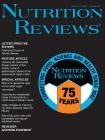
Rippe Lifestyle Institute team publishes article in Nutrition Reviews
Special Article
What is the appropriate upper limit for added sugars consumption?
(December 14, 2016)
The article titled What is the appropriate upper limit for added sugars consumption? concludes that there is nothing unique about added sugars that leads to obesity, diabetes, heart disease or non-alcoholic fatty liver disease. When sugars are exchanged calorie for calorie (“isocaloric” substitution) they do not behave differently than calories from any other source.
This is an important article since it challenges the basis of many of the restrictive guidelines which have been promulgated over the past five years by organizations such as the World Health Organization, The American Heart Association and the Dietary Guidelines for Americans 2015-2020.
Nutrition Reviews is a prestigious journal which is a journal of the International Life Sciences Institute. This article was found to be so important that in addition to publishing it online, they have chosen it to be published it print form in January, 2017. In January 2017 Nutrition Reviews will be celebrating its 75th Anniversary. Nutrition Reviews have chosen some of the most important articles they have published be contained in this issue as part of the celebration.


Rippe Lifestyle Institute team publishes article in Nutrients
Fructose Containing Sugars at Normal Levels of Consumption Do Not Effect Adversely Components of the Metabolic Syndrome and Risk Factors for Cardiovascular Disease
Theodore J. Angelopoulos, Joshua Lowndes, Stephanie Sinnett and James M. Rippe
(March 23, 2016)
Dr. Rippe and the team at Rippe Lifestyle Institute have published the above article in Nutrients. The article is based on a large, double blind, prospective, randomized controlled trial (267 individuals). The objective of the study was to explore the hypothesis that average consumption of fructose and fructose containing sugars would not increase risk factors for cardiovascular disease (CVD) and the metabolic syndrome (MetS). A randomized, double blind, parallel group study was conducted where 267 individuals with BMI between 23 and 35 kg/m2 consumed low fat sugar sweetened milk, daily for ten weeks as part of usual weight-maintenance diet.
One group consumed 18% of calories from high fructose corn syrup (HFCS), another group consumed 18% of calories from sucrose, a third group consumed 9% of calories from fructose, and the fourth group consumed 9% of calories from glucose. There was a small change in waist circumference (80.9 _ 9.5 vs. 81.5 _ 9.5 cm) in the entire cohort, as well as in total cholesterol (4.6 _ 1.0 vs. 4.7 _ 1.0 mmol/L, p < 0.01), triglycerides (TGs) (11.5 _ 6.4 vs. 12.6 _ 8.9 mmol/L, p < 0.01), and systolic (109.2 _ 10.2 vs. 106.1 _ 10.4 mmHg, p < 0.01) and diastolic blood pressure (69.8 _ 8.7 vs. 68.1 _ 9.7 mmHg, p < 0.01). The effects of commonly consumed sugars on components of the MetS and CVD risk factors are minimal, mixed and not clinically significant.
The findings show that there are no clinically significant increases in risk factors for the metabolic syndrome following 10 weeks of consumption of average levels of fructose containing sugars compared to a glucose control. This is important since the metabolic syndrome is very prevalent (is estimated that 40% of adults in the United States have this condition) and is a significant risk factor for both diabetes and heart disease.
The article has been published "open access" and is available online through the following mechanism:
Abstract: http://www.mdpi.com/2072-6643/8/4/179/
HTML Version: http://www.mdpi.com/2072-6643/8/4/179/html
PDF Version: http://www.mdpi.com/2072-6643/8/4/179/pdf
Rippe Lifestyle Institute is the largest research organization in the world exploring how daily habits and actions impact short and long-term health and quality of life. RLI has published hundreds of studies that form the scientific basis for the fields of lifestyle medicine and high performance health. Rippe Lifestyle Institute also conducts numerous studies every year on physical activity, nutrition and healthy weight management.


The Rippe Lifestyle Institute Coordinated Symposium at the 2015 European Congress on Obesity meeting in Prague, Czech Republic is published
"Fructose Containing Sugars, Metabolism and Health Current Scientific Understandings" in the International Journal of Obesity
(March 22, 2016)
The symposium was coordinated by the James M. Rippe, MD and the team at RLI. The symposium was then published in the prestigious International Journal of Obesity. This is the top obesity related journal in the world (impact factor = 5.004). IJO has a subscription list of 48,000 academicians and researchers in the area of obesity which makes it a very large journal.
The supplement contains five articles, two of which are co-authored by Dr. Rippe. The first article by Luc Tappy and Dr. Rippe frames issues related to the importance of evidence-based science when it comes to sugars and health. The second article by Campos and Tappy focuses on physiologic issues related to fructose metabolism and the implications for health related conditions such as high blood pressure, obesity and heart disease. The third article by Benton and Young, provides a systematic review of why the food "addiction" concept in general, and the sugar "addiction" concept in particular, is not supported by high level modern science.
The article by Dr. Ted Angelopoulos, RLI Research Director and Dr. Rippe focuses on high level, randomized controlled trials conducted at RLI and elsewhere concerning possible linkages between fructose containing sugars and obesity, diabetes, and heart disease. There was no unique link between fructose containing sugars and any of these conditions.
The final article by Luc Tappy is an opinion piece which argues that singling out one food within our diet as a potential meaningful approach to combating obesity or other metabolic related diseases is not supported by good science. He provides a model for how our diet and genes interact over many millennia.
James M. Rippe, MD, is a world-renowned cardiologist and graduate of Harvard College and Harvard Medical School with postgraduate training at Massachusetts General Hospital. He is currently the Founder and Director of the Rippe Lifestyle Institute (RLI). Over the past 20 years, Dr. Rippe has established and run the largest research organization (RLI) in the world, exploring how daily habits and actions impact short- and long-term health and quality of life. RLI has published hundreds of papers that form the scientific basis for the fields of lifestyle medicine and high-performance health. RLI also conducts numerous studies every year on nutrition and healthy weight management. Dr. Rippe has authored 50 books for the scientific community and the general public.
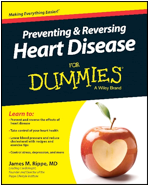 You Gotta Have Heart!
You Gotta Have Heart!
(January 1, 2015)
James M. Rippe, M.D. and Rippe Health are pleased to announce the publication of Preventing & Reversing Heart Disease For Dummies by James M. Rippe, MD (2015 Wiley).
Preventing & Reversing Heart Disease For Dummies provides a wide-ranging resource for individuals seeking objective, science based information upon which to base their lifestyle practices and habits. The safe and trusted ways to prevent and reverse heart disease are explained thoroughly with easy to apply practices.
Written in plain English and packed with tons of authoritative advice, Preventing & Reversing Heart Disease For Dummies includes the most up-to-date information on coronary heart disease and its treatment. This resource covers new ways to diagnose and treat both short- and long-term complications of heart disease, the latest medications, updated diet and exercise plans, the lowdown on recognizing the risk factors and warning signs of a heart attack, determining if you have heart disease, distinguishing between angina, heart attack, and stroke, and much more.
It is projected that by the year 2020, heart disease will be the leading cause of death throughout the world. As the magnitude of cardiovascular diseases continue to accelerate globally, the pressing need for increased awareness and a stronger, more focused national and international response has become more important than ever. Preventing & Reversing Heart Disease For Dummies tackles this vital subject with compassion and authority, outlining the steps you can take to help ensure you don't become just another statistic.
Preventing & Reversing Heart Disease For Dummies includes:
- Tips to help you find the right doctor and handle a managed care plan
- Full coverage of all thirteen types of heart disease and discusses the key differences that may determine progression and treatment
- Illustrates how simple changes in diet may be enough to prevent heart disease
- Shows how you can reverse some of the effects of heart disease through exercise
If you're suffering from or are at risk of heart disease or love someone who is, Preventing & Reversing Heart Disease For Dummies empowers you to take control of heart health and get on a path to a longer, healthier life. The book is available for purchase online and at retailers nationwide in both print and all e-book formats. For a full list of retailers, visit www.dummies.com/buy/9781118944233
###
About the Author
James M. Rippe, MD, is a world-renowned cardiologist and graduate of Harvard College and Harvard Medical School with postgraduate training at Massachusetts General Hospital. He is currently the Founder and Director of the Rippe Lifestyle Institute (RLI). Over the past 20 years, Dr. Rippe has established and run the largest research organization (RLI) in the world, exploring how daily habits and actions impact short- and long-term health and quality of life. RLI has published hundreds of papers that form the scientific basis for the fields of lifestyle medicine and high-performance health. RLI also conducts numerous studies every year on nutrition and healthy weight management. Dr. Rippe has authored 50 books for the scientific community and the general public.
About For Dummies®
After 20 years, more than 250 million copies printed, and millions of e-books downloaded, For Dummies is the world’s bestselling reference series, well known for enriching people’s lives by making knowledge accessible in a fun and easy way. Loyal customers around the globe agree that For Dummies is “more than a publishing phenomenon … [it is] a sign of the times,” [The New York Times]. With more than 1,800 active topics covering everything from health to history, music to math, sports to self-help, technology to travel, For Dummies is dedicated to Making Everything Easier. The For Dummies brand presence continues to expand wherever there is a need to know, including e-books, mobile apps, e-learning courses, a corporate custom publishing program, a robust consumer website and a licensed product line that includes consumer electronics, culinary, crafts, video, software, musical instrument packs, home improvement, automotive, game and more. For more information, visit Dummies.com. For Dummies is a branded imprint of Wiley.
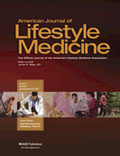 October 2014
October 2014
The current issue of the American Journal of Lifestyle Medicine, edited by James M. Rippe, MD, is highlighting the American College of Lifestyle Medicine's Annual Convention of 2013.
The following experts participated in a panel discussion moderated by Dr. James Rippe and was recorded on October 27, 2013 as the opening session of the American College of Lifestyle Medicine Annual Convention.
Participants included were well respected experts such as:
- * James M. Rippe, MD-Moderator, Founder and Director of the Rippe Lifestyle Institute
- * Wayne S. Dysinger, MD, MPH-Lifestyle Medicine Expert
- * Rosanne Rust, MS, RDN, LDN-Nutrition Expert
- * Arthur Frank, MD-Obesity Expert
- * Steven N. Blair, PED-Exercise Expert
- * Michael Parkinson, MD-Insurance and Prevention Expert
"The American Journal of Lifestyle Medicine (AJLM) is proud to play a role in bringing together these diverse experts in multiple areas of lifestyle medicine to discuss the "The Treat the Cause Movement." Our goal at AJLM has always been to provide a platform for serious, evidence-based discussion on how issues related to lifestyle impact on both short- and long-term health and quality of life.", said Dr. Rippe.
Topics discussed were the following:
- Major issues that impact on the field of lifestyle medicine in the area of nutrition
- Major issues related to the field of lifestyle medicine in the area of obesity
- How physical activity interacts with lifestyle medicine
- Major challenges facing the entire field of Lifestyle Medicine
- Lifestyle medicine as it relates to the Affordable Care Act and to insurance in general
- Ways to combat media that tell us of the newest "super food" and get people back to implementing what we already know about good nutrition
- Discussion on the article published by the American Heart Association in a scientific statement about implementing the American Heart Association Guidelines. The basic thrust of the article was that the emphasis had to be more on implementation rather than developing new guidelines.
- Controversy in the obesity world-looking for a perfect fix.
- Dr. Blair's study called "The Energy Balance Study."
And many other topics.
Dr. Rippe concluded the discussion by offering thanks and encouragement, "Thanks again to our panelists for a wonderful, inspiring, evidenced-based conversation and to our audience for your passion and commitment to lifestyle medicine. Together, we can and will change the world!".
You can find the entire article at www.RippeHealth.com
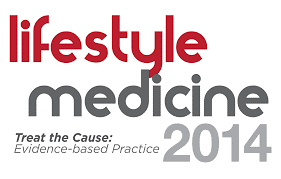
The American College of Lifestyle Medicine (ACLM) is hosting its annual conference this year with a focus on lifestyle strategies to reduce risk of disease. Noted cardiologist, Dr. James Rippe, will be front and center presenting "Lifestyle Strategies For Cardiovascular Risk Reduction" in a keynote discussion.
This year for the first time, the American Heart Association (AHA) and the American College of Cardiology (ACC) has produced guidelines for lifestyle management to reduce cardiovascular risk. Dr. Rippe's session will discuss these evidence-based guidelines including strength of evidence related to dietary patterns and lipids as well as blood pressure. Additionally, the strength of evidence in the area of physical activity and its role in cardiovascular disease risk reduction will be discussed. Dr. Rippe will specifically draw from his experience as editor in chief of Lifestyle Medicine (2nd Edition; published April 2013) and while writing the in-depth review article titled Lifestyle Strategies for Cardiovascular Risk Reduction published in the journal Current Atherosclerosis Reports (publish date August 5, 2014). Dr. Rippe's presentation is sponsored by the ConAgra Foods Science Institute.
The ACLM conference will be held October 19-22, 2014, at the Hyatt Regency Mission Bay Hotel in San Diego, California.
###

On March 11, 2014 Dr James Rippe, MD gave the Keynote Speech at the National Restaurant Association meeting for Nutrition Professionals entitled 'Obesity – Is sugar to blame?'

March 31, 2014
Contact: Carol Moreau – cmoreau@rippelifestyle.com (508) 756-1228
New Textbook on the Consumption of Sugar/Fructose Offers a Unique Nutrition Resource for Health Professionals
Nation’s Leading Medical/Nutritional Experts Provide Scientific Evidence on the Various Effects of Consuming Caloric Sweeteners
SHREWSBURY, MA – A new textbook, Fructose, High Fructose Corn Syrup, Sucrose and Health , published this month by Springer Press, under their Humana Press imprint, provides one of the most comprehensive scientific analyses on the closely-watched issue of caloric sweetener consumption. It represents the most up-to-date review of relevant scientific data that seeks to provide facts and dispel myths for audiences that often receive conflicting information about sugar/fructose consumption.
Chapters in the book discuss the effects of both nutritive and non-nutritive sweeteners on appetite and food consumption, as well as the physiologic and neurologic responses to sweetness. Chapter authors are world class, practice and research oriented nutrition authorities. They provide practical, data-driven resources based upon the totality of the evidence to help the reader understand the basics of fructose, high fructose corn syrup and sucrose biochemistry. The textbook also examines the short-term and long-term consequences of consuming these sweeteners in the diets of young children through to adolescence and adulthood.
“The issue of sugar and fructose consumption is one of the more prominent health issues currently being debated and there is quite a bit of misinformation and hyperbole in this issue,” said the textbook’s editor, James M. Rippe, MD, Founder and Director of the Rippe Lifestyle Institute. “We were fortunate to get some of the best minds in the field of nutritional science to provide unvarnished, scientific facts about this issue in hopes of providing greater public understanding and a strong foundation for future scientific research in this field.”
Some chapter highlights include:
- “Added Sugars and Health” by John L. Sievenpiper, MD, PhD., McMaster University : “Concerns raised by fructose’s unique biochemistry and the ecological and animal studies linking added fructose to various diseases have not been supported by higher level evidence. Evidence from prospective cohort studies and controlled feeding trials when taken together has not shown convincing evidence of harm of added fructose-containing sugars over and above that of other carbohydrate sources of energy in the diet.”
- “Are Sugars Addictive?” by Rebecca L. Corwin, Ph.D., RD, Pennsylvania State University and John E. Hayes, Ph.D., Pennsylvania State University: “We and others have argued against the idea that food addiction is widespread and functions as a driving force behind the current obesity epidemic. Even the idea that a small segment of the population, such as those with Bulimia Nervosa or a subpopulation of those with Binge Eating Disorder, is addicted to food is questionable and should be approached with caution.”
- “Sweeteners and the Brain” by Athylia Paremski and Miguel Alonso-Alonso, MD, MPhil, Harvard Medical School: “Cognition can influence food intake at multiple stages. High-level cognitive inputs, such as the sight of a word, can modulate the activity of brain regions that are involved in processing sensory characteristics of a particular food, such as taste and smell, and the resulting reward value. There is also data suggesting that cognitive suppression of hunger and craving elicited by cues of palatable food engages the activity of a distributed brain network comprising lateral and dorsomedial parts of the prefrontal cortex. Additionally, it is well-known that branding can have a profound impact in the way a food product is perceived, specifically in the case of a sweetened beverage.”
- “Non-Nutritive Sweeteners” by John D. Fernstrom, Ph.D., University of Pittsburgh School of Medicine: “The influence of non-nutritive sweeteners on incretion secretion and action is still an unfinished area of investigation, but human studies in which NNS are covertly added to the diet for as long as 18 months, uniformly show that chronic NNS ingestion does not stimulate food intake or cause weight gain.”
- “Sweeteners and Diabetes” by Adrian I. Cozma, HBSC, University of Toronto; Vanessa Ha, M.S.; Viranda H. Jayalath, M.S. (candidate); Russell J. de Souza RD, Sc.D., McMaster University; and John L. Sievenpiper MD, PhD., McMaster University: “Much of the evidence cited in support for a role of sugars in the increasing prevalence of obesity is derived from weak animal and ecological studies that establish associations, but not cause and effect relationships… the current evidence fails to show a clear link with, or between, sucrose and fructose and the increasing incidence of diabetes.
If you wish to learn more about Fructose, High Fructose Corn Syrup, Sucrose and Health, please visit Springer.com.
###
Dr. Rippe is a cardiologist and graduate of Harvard College and Harvard Medical School. His research laboratory has conducted numerous studies and is published widely in the areas of nutrition and weight management. He is an advisor to the food and beverage industry. Dr. Rippe’s research laboratory has received unrestricted grant funding to conduct research trials and Dr. Rippe has received consulting fees from a variety of companies, organizations, publishers or trade associations that utilize, market or publish information about fructose, high fructose corn syrup or sucrose and hence, have an ongoing interest in the metabolism and health effects of these sugars.
He is the Founder and Director of the Rippe Lifestyle Institute.
The American College of Lifestyle Medicine (ACLM) hosts its annual conference, October 27 – 30, 2013, at the Renaissance Arlington Capitol View Hotel in Crystal City, VA – just outside of Washington D.C. The conference will feature prominent keynote speakers such as Dr. James Rippe.
Dr. Rippe will discuss grounding lifestyle medicine in the overwhelming body of scientific literature available demonstrating how daily habits and actions impact on short and long term health and quality of life. Dr. Rippe will specifically draw from his experience as editor in chief of the following publications:
- Lifestyle Medicine (2nd Edition; published April 2013)
- Encyclopedia of Lifestyle Medicine and Health (published February 2012)
- American Journal of Lifestyle Medicine (published bi-monthly)
These three publications form the academic basis for the evidence supporting the important role of lifestyle medicine in various aspects of health.
For more information: flyer or website
Follow the ACLM on Twitter (@ACLifeMed, hashtag #LifeMed2013) and Facebook (http://www.facebook.com/lifestylemed).
New Study Finds Neither HFCS nor Table Sugar Increases Liver Fat under “Real World” Conditions
Adds to Scientific Evidence that the Sweeteners are Metabolically Equivalent
Shrewsbury, MA (Febraury 12, 2013) A study published today in the Journal of Applied Physiology, Nutrition, and Metabolism presented compelling data showing the consumption of both high fructose corn syrup (HFCS) and sucrose (table sugar) at levels consistent with average daily consumption do not increase liver fat in humans, a leading cause of non-alcoholic fatty liver disease (NAFLD). The findings also add to an already well-established body of science that high fructose corn syrup and table sugar are metabolically equivalent.
Increased fat levels in the liver and muscle tissue have also shown to contribute to insulin resistance, a key factor in the development of type 2 diabetes.
The study, conducted by James Rippe, MD, Founder and Director of the Rippe Lifestyle Institute, examined sixty-four individuals who consumed low-fat milk sweetened with either HFCS or sucrose with the added sugar matching the 25th, 50th and 90th percentile population consumption levels of fructose for ten weeks.
The results showed fat content of the liver remained unchanged when the six HFCS and sucrose groups were averaged. Fat content in muscle tissue was also unchanged over the 10 weeks when the six HFCS and sucrose groups were averaged.
“The study’s results are compelling because this is the first study of its kind to test the effects of HFCS and sucrose on liver fat levels in humans using real world conditions,” said Dr. Rippe, who received a grant from the Corn Refiners Association (CRA) to conduct the study. “Previous studies that sought to find a link between caloric sweeteners and diseases such as type 2 diabetes and liver disease often subjected individuals to unrealistically high levels of fructose or had subjects consume fructose independent of glucose, which is just not how fructose is consumed in our daily diet. Using real world conditions, we find that HFCS and other caloric sweeteners do not appear to increase liver fat or contribute to insulin resistance.”
The two largest sources of fructose in the human diet are sucrose (containing 50% fructose and 50% glucose) and HFCS which is present in the human diet in two forms: HFCS-55 (which consists of 55% fructose, 42% glucose and 3% other carbohydrates) and HFCS-42 (which consists of 42% fructose and 58% glucose).
“This study seems to confirm what physicians, registered dietitians and healthcare associations such as the American Medical Association have been saying for decades,” said Dr. Mark Haub, Associate Professor in the Department of Nutrition at Kansas State University. “Not only is it safe to consume caloric sweeteners at recommended levels, it is important for consumers to understand that high fructose corn syrup and table sugar have the same amount of calories and studies like this indicate your body metabolizes them about the same.”
For further information or to obtain a copy of this study, please visit www.nrcresearchpress.com/journal/apnm
###
Dr. Rippe is a cardiologist and graduate of Harvard College and Harvard Medical School. His research laboratory has conducted numerous studies and published widely in the areas of nutrition and weight management. He is an advisor to the food and beverage industry and has received unrestricted educational grants from the Corn Refiners Association. He is the Founder and Director of the Rippe Lifestyle Institute.
Looking to Lose Weight? New Study Shows Sugar and High Fructose Corn Syrup Perform Equally on a Reduced Calorie Diet
Shrewsbury, MA (August 9, 2012) A new study published in Nutrition Journal shows that people can lose weight while consuming typical amounts of sugar or high fructose corn syrup (HFCS) if their overall caloric intake is reduced.
“Our research debunks the vilification of high fructose corn syrup in the diet,” said James M. Rippe, M.D., one of the study authors. “The results show that equally reduced-calorie diets caused similar weight loss regardless of the type or amount of added sugars. This lends further support to findings by our research group and others that table sugar and HFCS are metabolically equivalent.”
The results are significant for those trying to lose weight and anyone concerned about the type of added sugars in foods and beverages they consume. Importantly, this study looks at sweeteners consumed in real-world diets and at levels that are typical among American consumers.
“We wanted to design a study that would generate information that is useful and applicable to the way people actually eat, not speculative results on simulated laboratory diets that focus on one component at extreme dietary levels,” explained Dr. Rippe.
The study design included 247 overweight or obese subjects ages 25 to 60 who took part in the randomized, double blind trial. After 12 weeks on a hypocaloric (reduced calorie) diet, there was no evidence that either table sugar or HFCS prevented weight loss when the amount of overall calories was reduced.
“Misinformation about added sugars, particularly high fructose corn syrup, has caused many people to lose sight of the fact that there is no silver bullet when it comes to weight loss,” said Dr. Rippe. “A reduction in calorie consumption, along with exercise and a balanced diet, is what’s most important when it comes to weight loss.”
Links: Abstract and Full Study
###
Dr. Rippe is a cardiologist and graduate of Harvard College and Harvard Medical School. His research laboratory has conducted numerous studies and published widely in the areas of nutrition and weight management. He is an advisor to the food and beverage industry including the Corn Refiners Association, which funded this research with an unrestricted educational grant. He is the Founder and Director of the Rippe Lifestyle Institute.
CLINICIANS ARE ARMED WITH NEW ACADEMIC TEXTBOOK IN 2012
OBESITY: PREVENTION AND TREATMENT
EDITED BY DR. JAMES RIPPE AND DR. TED ANGELOPOULOS
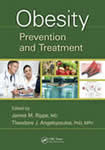 (June 8, 2012) The prevalence of obesity in the United States and the rest of the industrialized world has skyrocketed in the past 20 years. With over two thirds of the adult population just in the US either overweight or obese, clinicians from all branches of medicine are in desperate need of guidance so that they may play an active role in diagnosing and treating obesity and its related conditions. Linked to heart disease, diabetes, hypertension, and metabolic syndrome, it is also the leading cause of osteoarthritis and the second leading cause of cancer. Now, the new academic textbook Obesity: Prevention And Treatment edited by James M. Rippe, MD and Ted Angelopoulos, PhD, MPH, arms clinicians with the information they need to create an appropriate prevention and treatment program for their patients.
(June 8, 2012) The prevalence of obesity in the United States and the rest of the industrialized world has skyrocketed in the past 20 years. With over two thirds of the adult population just in the US either overweight or obese, clinicians from all branches of medicine are in desperate need of guidance so that they may play an active role in diagnosing and treating obesity and its related conditions. Linked to heart disease, diabetes, hypertension, and metabolic syndrome, it is also the leading cause of osteoarthritis and the second leading cause of cancer. Now, the new academic textbook Obesity: Prevention And Treatment edited by James M. Rippe, MD and Ted Angelopoulos, PhD, MPH, arms clinicians with the information they need to create an appropriate prevention and treatment program for their patients.
With contributions from leading experts in the field, Obesity: Prevention and Treatment bridges the gap between emerging understanding of the pathophysiology of obesity with concrete clinical applications for physicians and other healthcare workers in all disciplines of medicine.
Obesity: Prevention And Treatment includes nutritional aspects, exercise management, and behavioral management of overweight and obese patients. It presents practical applications and resources including commercial weight loss programs and books, as well as Internet tools and resources to manage the obese patient. It discusses public policy implications and future directions in obesity research. It is designed for clinicians in all fields of medicine as well as other healthcare professionals.
Following an overview of issues related to the prevention and management of obesity, the book discusses:
- Energy balance, the metabolic predictors of weight gain, and the role of adipokines, genetics, and the environment on obesity
- The epidemiology of obesity
- The identification and evaluation of the overweight patient as a guide to the selection of treatment
- Nutritional aspects of obesity treatment and management
- Exercise risks to which the obese patient may be more prone and steps that can be taken to mitigate these risks
- Behavior modification strategies for the obese patient
- The definition, assessment, consequences, and treatment of childhood obesity
- Drugs and surgical options for treatment
- The implications of public policy on the problem of obesity
- The significance of intra-abdominal and ectopic fat deposition in endocrine aspects of obesity
James M. Rippe, MD, is a graduate of Harvard College and Harvard Medical School with postgraduate training at Massachusetts General Hospital. He is currently the Founder and Director of the Rippe Lifestyle Institute (RLI). Over the past 20 years, Dr. Rippe has established and run the largest research organization (RLI) in the world, exploring how daily habits and actions impact short- and long-term health and quality of life. This organization has published hundreds of papers that form the scientific basis for the fields of lifestyle medicine and high-performance health. RLI also conducts numerous studies every year on nutrition and healthy weight management.
Theodore J. Angelopoulos, PhD, MPH, is a former scholar of Greece's National Secretary of Education and has pursued training in exercise physiology and epidemiology at the University of Pittsburgh, Pennsylvania. He also completed a three-year postdoctoral training in metabolism at Washington University School of Medicine in Saint Louis. He is currently a Professor in the Department of Health Professions and Director of the Laboratory of Applied Physiology at the University of Central Florida, Orlando, where he also served as Research Director of the Center for Lifestyle Medicine (2006-2010). Dr. Angelopoulos' major research areas include metabolism and physiogenomics. He has developed a strong research partnership with the Exercise and Genetics Collaborative Research Group and has received funds from the National Institutes of Health and from industry sponsors
The Rippe Health publishing team has written or edited 45 books and remains active in all aspects of writing, editing, and publishing. Irwin and Rippe's Procedures, Techniques and Minimally Invasive Monitoring in Intensive Care Medicine, which is a companion book to Irwin and Rippe's Intensive Care Medicine, has also been published recently.
Additionally, a two-volume Encyclopedia of Lifestyle Medicine and Health, edited by Dr. Rippe, was published in December 2011 (SAGE Publications, Thousand Oaks, CA). The second edition of Dr. Rippe's major reference Lifestyle Medicine (CRC Press, Boca Raton, FL) is anticipated to be published in March 2013.
TOXIC SUGAR CLAIMS ARE DEBUNKED AT GLOBAL CONFERENCE
San Diego, CA (April 22, 2012) Two sweetener myths, one comparing differences in metabolic activity between sugar and High Fructose Corn Syrup (HFCS), and another suggesting sugar is toxic to the body, suffered serious setbacks at this year’s Experimental Biology 2012 conference in San Diego.
In fact, the scientific community gave it’s highest rating to the symposium entitled “Fructose, Sucrose, and High Fructose Corn Syrup: Modern Scientific Findings and Health Implications.”
In it, renowned cardiologist and researcher, James M. Rippe, M.D., presented recent findings from research conducted at Rippe Lifestyle Institute (RLI) demonstrating that there were no differences between high fructose corn syrup and sucrose at any dosage level on any parameter related to energy regulation and appetite (e.g. insulin, leptin, ghrelin). Dr. Rippe also showed data suggesting that neither HFCS nor sucrose led to increased risk of diabetes, the metabolic syndrome, or coronary heart disease. He also summarized data from the RLI Research Team suggesting that there was no increased fat accumulation in either the liver or the muscle from consuming either of these sugars.
The presentation, entitled “The Health Implications of Sucrose, High Fructose Corn Syrup and Fructose: What Do We Really Know?” sought to bring together the world’s leading experts on modern understandings of sugar metabolism and health implications. It generated a packed, standing-room-only audience of 1,400 scientists, attesting to the high level of interest in this topic.
During the session, Dr. Rippe presented findings from recent randomized controlled trials, “which are the highest level of evidence that you can have,” he notes, “on what we really know about sucrose and high fructose corn syrup. I presented five different studies that basically all come to the same conclusion that various levels of consumption of either high fructose corn syrup or sucrose are absolutely identical in terms of their metabolism and health effects.”
“So we have very compelling evidence now that really locks down even further that there is no difference between high fructose corn syrup and sucrose,” says Dr. Rippe. “People in the food industry, companies that are substituting sucrose for high fructose corn syrup, are doing so 100% for marketing purposes. From the medical health consequences, from the standpoint of metabolism, the two are identical. Within the scientific community, there is no longer any debate that there is any difference between high fructose corn syrup and sucrose.”
The Medical and Nutrition Committee of the American Society of Nutrition sponsored the symposium.

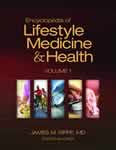 Sort out the science for how life choices affect health in SAGE Reference’s Encyclopedia of Lifestyle Medicine and Health
Sort out the science for how life choices affect health in SAGE Reference’s Encyclopedia of Lifestyle Medicine and Health
Los Angeles (November 15, 2011) We’re continually bombarded by dramatic news reports and magazine cover stories about how different lifestyle habits both negatively and positively affect our health. And at times, one set of data contradicts another. Clarifying all that information, and helping the reader discern sound, evidence-based science from fads, is the new authoritative Encyclopedia of Lifestyle Medicine and Health, published by SAGE Reference.
In two information-packed volumes, Encyclopedia of Lifestyle Medicine and Health helps define the interdisciplinary field of lifestyle health, providing historical and contemporary coverage of relevant lifestyle and health topics and issues. Included is a useful appendix containing listings of health promotion agencies and organizations, along with selected websites for research studies. The 321 A–Z entries, each written by an expert in the field and featuring accompanying bibliographies and suggested readings, are helpfully organized in a Reader’s Guide within the following key topics areas:
- Aging
- Behavioral Medicine
- Cardiovascular Medicine
- Chronic Disease, Disease Prevention, and Lifestyle Behaviors
- Concepts in Lifestyle Medicine
- Epidemiology and Demographics of Lifestyle-Related Health Issues
- Exercise Physiology
- Exercise-Related Injuries
- Food and Nutrition
- Health Policy, Public Health, and Health Education
- Immunology and Infectious Diseases
- Internal Medicine
- Men’s Health
- Obesity and Weight Management
- Pain Management
- Pediatric and Adolescent Medicine
- Physical Activity and Inactivity
- Physical Therapy
- Preventive Medicine
- Substance Use and Abuse
- Women’s Health
Encyclopedia of Lifestyle Medicine and Heath is written accessibly, making it useful for a broad audience, including students and academics in the fields of health, physical education, biology, medicine, nursing and allied health, physical therapy, nutrition, public health, and health communication, as well as for lay readers interested in health. This is a must-have resource for libraries everywhere because it empowers readers to lead and promote healthier lifestyles.
 ENCYCLOPEDIA OF LIFESTYLE MEDICINE AND HEALTH
PUBLISHED ONLINE
ENCYCLOPEDIA OF LIFESTYLE MEDICINE AND HEALTH
PUBLISHED ONLINE
(December 8, 2011) James M. Rippe, M.D. and Rippe Health are pleased to announce the online publication of the Encyclopedia of Lifestyle Medicine and Health edited by Dr. Rippe (SAGE Reference, Thousand Oaks, CA 2012). The Encyclopedia of Lifestyle Medicine and Health provides a wide-ranging resource for individuals seeking objective, science based information upon which to base their lifestyle practices and habits.
According to SAGE Publications, “The Encyclopedia of Lifestyle Medicine and Health sorts out the science behind nightly news reports and magazine cover stories, helping the reader to discern sound, evidence-based advice from that which is merely fad.”
“We are proud to announce the online availability of the Encyclopedia of Lifestyle Medicine and Health,” stated Dr. Rippe. “This comprehensive, two volume Encyclopedia thoroughly covers important topics in lifestyle medicine from A-Z. I hope and believe it will advance the field of lifestyle medicine and make this information accessible to a much broader audience.”
The Encyclopedia brings together the vast experience, reasoned judgment and wisdom of more than 255 contributors who have written over 350 essays on every conceivable topic related to how daily lifestyle habits and practices impact on health. The volumes convey the latest research on lifestyle medicine incorporating content from such areas as health psychology, communication, public policy and health promotion, and disease prevention, among others.
SAGE Publications continues, “This comprehensive reference source is written accessibly making it useful for a broad audience including students and academics in the fields of health, physical education, biology, medicine, nursing and allied health, physical therapy, nutrition, public health, and health communication, as well as for lay readers interested in learning how to lead a healthier lifestyle.”
Dr. Rippe and the Rippe Health research team first coined the term “Lifestyle Medicine” to define the study of how lifestyle habits impact on health with the publication of the first edition of Dr. Rippe’s academic textbook, Lifestyle Medicine (Blackwell Science, 1999). The second edition of this academic textbook is due to be published late in 2012. Dr. Rippe also serves as the Editor in Chief of the only academic, peer reviewed journal in lifestyle medicine, the American Journal of Lifestyle Medicine.
“This book is a testimony to the hard work of many individuals but I would particularly like to acknowledge the key role played by my Associate Editor, Mary Abbott Waite, Ph.D., who made substantial contributions to the Encyclopedia at every step during of the publication process,” says Dr. Rippe.
More information on the Encyclopedia of Lifestyle Medicine and Health may be obtained at http://www.sagepub.com/books/Book230684.
The hardcover edition of the Encyclopedia of Lifestyle Medicine and Health will be published in January of 2012. The Encyclopedia of Lifestyle Medicine and Health is the third major academic publication edited by the RLI publishing team in 2011. Dr. Rippe’s ICU textbook, Irwin and Rippe’s Intensive Care Medicine and the companion book, Irwin and Rippe’s Procedures, Techniques and Minimally Invasive Monitoring in the Intensive Care Unit were both published in the Fall of 2011. A major academic textbook called Obesity: Prevention and Management, co-edited by Dr. Rippe and Dr. Ted Angelopoulos, Research Director at RLI, will be published in May of 2012.
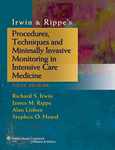 5th Edition of Irwin and Rippe's Procedures, Techniques and Minimally Invasive Monitoring in Intensive Care Medicine Published
5th Edition of Irwin and Rippe's Procedures, Techniques and Minimally Invasive Monitoring in Intensive Care Medicine Published
(October 13, 2011) James M. Rippe, M.D. and Rippe Health are pleased to announce the publication of the 5th edition of Irwin and Rippe's Procedures, Techniques and Minimally Invasive Monitoring in Intensive Care Medicine (Lippincott Williams & Wilkins, 2011, Philadelphia, PA).
"We are pleased and proud to announce the publication of the most recent edition of our book," stated Dr. Rippe. "This book covers common techniques and procedures utilized in the intensive care unit and puts them in a user-friendly format."
Irwin and Rippe's Procedures, Techniques and Minimally Invasive Monitoring in Intensive Care Medicine is a large format, soft-cover book that is co-edited by Drs. Richard Irwin, James Rippe, Alan Lisbon and Stephen Heard. It has over 50 co-authors and 340 pages detailing all of the major procedures and techniques practiced in modern intensive care medicine.
Irwin and Rippe's Procedures, Techniques and Minimally Invasive Monitoring in Intensive Care Medicine is a companion book that draws material from Irwin and Rippe's Intensive Care Medicine (7th edition, Lippincott, Williams & Wilkins, Philadelphia, PA) which was published earlier this month.
Previous editions of Irwin and Rippe's Procedures, Techniques and Minimally Invasive Monitoring in Intensive Care Medicine book have enjoyed great popularity, particularly among Intensive Care Fellows, House Officers, and other health professionals.
Dr. Rippe continued, "This book is an outgrowth of the longstanding productive publishing relationship that I have had with Dr. Irwin. Additionally, Beth Grady, our Editorial Director, has done her typical outstanding job on this book, as have the excellent publishing team at Lippincott Williams & Wilkins."
The Rippe Health publishing team remains very active. This team has been responsible for writing and/or editing 44 books and remains active in diverse areas of medical and trade publishing.
The two-volume Encyclopedia of Lifestyle Medicine and Health, edited by Dr. Rippe (SAGE Publications, Thousand Oaks, CA) will be published in December. An academic textbook, Obesity: Prevention and Treatment, co-edited by Dr. Rippe and Dr. Ted Angelopoulos (Research Director of Rippe Lifestyle Institute) is due to be published in the spring of 2012 (CRC Press, Boca Raton, FL).
The second edition of Dr. Rippe's major academic textbook Lifestyle Medicine is anticipated to be published in late 2012 (CRC Press, Boca Raton, FL).
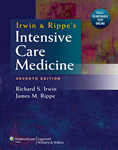 7th Edition of Irwin and Rippe's Intensive Care Medicine Published
7th Edition of Irwin and Rippe's Intensive Care Medicine Published
(October 6, 2011) James M. Rippe, M.D. and Rippe Health are pleased to announce the publication of the 7th edition of Irwin and Rippe's Intensive Care Medicine (Lippincott Williams & Wilkins, 2011, Philadelphia, PA).
Irwin and Rippe's Intensive Care Medicine is the leading ICU textbook in the world and is in virtually every major intensive care unit in the United States. The book is approximately 2,300 pages long with 216 chapters and over 280 contributing authors representing international leaders in virtually every branch of modern intensive care.
Irwin and Rippe's Intensive Care Medicine was the first book to combine all aspects of medical intensive care, coronary care, surgical intensive care, anesthesiology intensive care, and neurology intensive care.
"I am pleased and proud to announce the 7th edition of our textbook," stated Dr. Rippe. "This textbook was first conceived when I was a house officer at Massachusetts General Hospital. Now, almost 30 years later, I believe it has fundamentally changed the face of modern intensive care practice."
"Due to the wonderful efforts of my co-editor, Dr. Richard Irwin, and my Editorial Director, Beth Grady, as well as our distinguished group of internationally recognized section editors and authors, the textbook continues to evolve to provide up-to-date, definitive guidelines, and evidence based practices for physicians taking care of desperately ill patients in intensive care units around the world," continued Dr. Rippe.
The Rippe Health publishing team has written or edited 44 books and remains active in all aspects of writing, editing, and publishing. Irwin and Rippe's Procedures, Techniques and Minimally Invasive Monitoring in Intensive Care Medicine, which is a companion book to Irwin and Rippe's Intensive Care Medicine, has also been published this month.
Additionally, a two-volume Encyclopedia of Lifestyle Medicine and Health, edited by Dr. Rippe, will be published in December (SAGE Publications, Thousand Oaks, CA). An academic textbook, Obesity: Prevention and Treatment, co-edited by Dr. Rippe and Dr. Ted Angelopoulos (Research Director of Rippe Lifestyle Institute), is due to be published in the Spring of 2012 (CRC Press, Boca Raton, FL).
The second edition of Dr. Rippe's major academic textbook Lifestyle Medicine (CRC Press, Boca Raton, FL) is anticipated to be published in late 2012.
High Fructose Corn Syrup and Sucrose are Nutritionally Equivalent and May Help Improve Dietary Quality During Weight Loss
Latest Findings Presented at the Obesity 2011 - the 29th Annual Scientific Meeting of The Obesity Society
ORLANDO, Florida, October 2, 2011
High Fructose Corn Syrup and Sucrose are Nutritionally Equivalent and May Help Improve Dietary Quality During Weight Loss
Authors Joshua Lowndes, Terry Papadopoulos, Britte Lowther, Diana Kawiecki, Zhiping Yu, Sabrina Pardo, James Rippe
Background: Reducing energy intake is a primary strategy for inducing weight loss, but this also often results in a reduction in non-caloric nutrient intake. Strategies to maintain or improve dietary quality in the face of initiation of a hypocaloric diet are therefore desirable.
Methods: 156 participants were randomly assigned to one of 5 study groups. 4 diet groups followed an ADA exchange diet with a 500Kcal/day deficit while consuming milk sweetened with either HFCS or sucrose daily. The volume of milk was prescribed so the added sugar contributed either 10% (H10 and S10) or 20% (H20 or 20%) of the caloric target for each individual. All participants also followed a regular exercise regime. A 5th non-dietary group was included as an exercise only control group (EO). Food intake was assessed via 3-day food records completed at the beginning and end of the 12 week period.
Results: All 4 diet groups lost weight (p<0.05). Milk consumption averaged 96.6% across all 4 diet groups. Across all 5 groups energy intake decreased by 294Kcals/day (p<0.001), irrespective of group assignment. All 4 diet groups increased intake of Vitamin D (H10:9.4 ± 2.5, H20: 9.1 ± 5.0, S10: 8.9 ± 2.9, S20: 9.1 ± 3.6µg, p<0.001), calcium (H10: 623.7 ±494.8, H20: 540.0 ± 272.3, S10: 749.7 ± 450.8, S20: 564.5 ± 429.0mg, p<0.001) and potassium (H10: 759.2 ±890.4, H20: 547.6 ±554.9, S10: 955.9 ± 812.7, S20: 678.2 ± 728.9mg, p<0.001).
Conclusion: These data show that HFCS and Sucrose are nutritionally equivalent and that significant amounts of both can be consumed daily as part of a successful weight loss diet. Furthermore, consumption of these sweeteners in the form of low fat, sweetened milk is both palatable and helps improve important aspects of dietary quality even in the face of a caloric deficit.
Research Shows High Fructose Corn Syrup and Sucrose are Nutritionally Equivalent and May Help Improve Dietary Quality
Latest Findings Presented at the 2011 American Dietetic Association FNCE Conference
SAN DIEGO, California, September 25, 2011
High Fructose Corn Syrup and Sucrose are Nutritionally Equivalent and May Help Improve Dietary Quality
D. Kawiecki, S. Pardo, T. Papadopoulos, L. Cooper, V. Nguyen, B. Lowther, J. Lowndes, J. Rippe
Learning Outcome: The reader will understand how commonly consumed components of the diet can be incorporated into a healthy diet.
Background: This study evaluated the effects of consuming either 10% or 20% of calories from either high fructose corn syrup (HFCS) or sucrose (SUC) sweetened 1% milk as part of a eucaloric (weight stable) diet on the metabolism and health effects of different sugars. This report describes the effects of two sweeteners at two levels of consumption on dietary quality.
Methods: For 10 weeks each of 115 participants followed the above referenced diet. Study participants were taught how to complete 3 day food records which were reviewed by study dietitians prior to, and at the end of, the 10 week intervention to assess compliance with the study diet and dietary quality.
Results: Interventional compliance was high, at over 96%. No significant weight gain occurred in any of the intervention groups. No significant increase in calories or differences in calorie consumption occurred in any group. The increase in percentage of calories for the entire cohort from carbohydrate (49.2±7.8 vs. 53.9±6.2%, p<0.001) was offset by a reduction in the % of calories from fat (33.1±6.8 vs. 26.9±5.1%, p<0.001) with no change in protein (19.6±3.7 vs. 18.8±3.4, p>0.05). Significant increases in dietary calcium (954.6±762.3 vs. 1992.2±841.8mg, p<0.001), vitamin D (5.3±5.6 vs. 17.0±7.7mg, p<0.001) and potassium (2660±1203.3 vs. 3826±1381.3mg, p<0.001) occurred.
Conclusion: These data show that HFCS and Sucrose are nutritionally equivalent, can be consumed at 10-20% of calories (5-10% of calories as fructose) without weight gain and may improve dietary quality by improving palatability and compliance with nutrient dense foods.
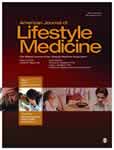 Violence Remains in Top 10 Causes of Death
Violence Remains in Top 10 Causes of Death
Rippe Health Editorial Team Joins Forces With CDC On A Key Issue In Lifestyle Medicine
Los Angeles, CA (September 16, 2011) Suicide, child abuse, playground fights, gang violence, sexual assault, and domestic violence are just a few examples of violence that touch people in all walks of life and communities everywhere. Homicide and suicide remain in the top ten leading causes of death for people from birth to age 64. How do you combat an issue that takes so many forms and has so many causes? The National Center for Injury Prevention and Control (NCIPC) in the Centers for Disease Control and Prevention (CDC) and the American Journal of Lifestyle Medicine (published by SAGE) have developed a special issue to take a closer look at violence prevention.
“Violence is an unfortunate reality of the world we live in with direct implications for health” stated Dr. James Rippe, Editor in Chief of the American Journal of Lifestyle Medicine. “We are delighted to join with the CDC to bring this important issue to the forefront of medical discussion.”
The special issue is entitled “Lifestyle Medicine, Public Health and Violence.”
Because of the complexities surrounding violence, its impact on society is deep and multifaceted. Aside from the physical effects, which have prompted the American Medical Association to recognize violence as a health issue, there are also very real monetary effects. According to the American Journal of Preventative Medicine, the estimated annual cost of medical care and productivity lost because of violence each year is estimated at more than $70 billion.
To help explore these issues and begin working on some solutions, guest co-editors Dr. Tamara Haegerich and Dr. Linda Dahlberg from CDC’s Division of Violence Prevention sought articles that provide information about the prevalence of violence, circumstances surrounding violence, and even effective or promising approaches for violence prevention. Additionally, the foreword, written by Dr. Linda Degutis, Director of CDC’s Injury Center, and Dr. Robin Ikeda, Director of CDC’s Office of Noncommunicable Diseases, Injury, and Environmental Health focuses particularly on efforts most relevant for health care providers.
“Clinicians play an integral role in preventing violence on both individual and community levels. By understanding and recognizing risks for violence in their patients, they can identify warning signs and make referrals to effective preventive services. They can add to the voice of the community in raising awareness of violence, and in implementing evidence-based strategies to prevent it,” said Dr. Degutis. “Working together, we can weave the fabric of a non-violent community, where people can live safe, healthy and productive lives.”
The American Journal of Lifestyle Medicine features the following additional articles by CDC authors and their colleagues:
- “Violence as a Public Health Risk” by Tamara M. Haegerich and Linda L. Dahlberg
- “Sexual Violence Victimization of Women: Prevalence, Characteristics, and the Role of Public Health and Prevention” by Kathleen C. Basile and Sharon G. Smith
- “Addressing Self-Directed Violence Prevention for Preventive Medicine Practitioners” by Alex E. Crosby, Ayanna V. Buckner, and Beverly D. Taylor.
- “Intimate Partner Violence and Adverse Health Consequences: Implications for Clinicians” by Michele C. Black
- “A Review of Physical and Mental Health Consequences of Child Abuse and Neglect and Implications for Practice” by Rebecca T. Leeb, Terri Lewis, and Adam J. Zolotor
- “Violence and Men’s Health: Understanding the Etiological Underpinnings of Men’s Experiences with Violence” by Tamara M. Haegerich and Jeffrey E. Hall
The special edition of the American Journal of Lifestyle Medicine is available free for a limited time at: http://ajlm.sagepub.com/content/5/5.toc.
This effort is the second partnership between the CDC and the American Journal of Lifestyle Medicine. The first, published in 2009, focused on lifestyle medicine and unintentional injury prevention.
###
American Journal of Lifestyle Medicine (AJLM) is a peer-reviewed bi-monthly resource for practitioners seeking to incorporate lifestyle practices into clinical medicine. AJLM provides commentaries and research reviews on nutrition and diet, cardiovascular disease, obesity, anxiety and depression, sleep problems, metabolic disease, and more. www.ajl.sagepub.com

Incorporating Lifestyle Medicine Into a Large Health Care System: The Orlando Health Experience
Dr. Rippe is the Director of the Lifestyle Medicine Initiative at Orlando Health and leads a collaborative partnership to bring Lifestyle Medicine to Central Florida through the Lifestyle Medicine Initiative at Orlando Health. This article describes how Orlando Health, and its initiative to incorporate lifestyle medicine concepts into its core operating principles. Great progress has been made in the past 18 months in this initiative although numerous challenges remain. The authors enumerate both progress and challenges. They hope the experience at Orlando Health will challenge and inspire other health care systems to also take a more proactive stance in incorporating lifestyle medicine into their culture and core operating principles.

American Journal of Lifestyle Medicine inaugurates a series of clinical presentations titled "Lifestyle Medicine Rounds from Orlando Health"
Dr. Rippe leads the first "Lifestyle Medicine Rounds From Orlando Health." The purpose of these rounds is to explore how the principles of lifestyle medicine can be applied to the care of hospitalized patients and to demonstrate how lifestyle medicine can be incorporated into traditional medical education venues. Orlando Health is the first hospital healthcare system to embrace lifestyle medicine as a core operating principle.

Lifestyle Medicine and Health Care Reform
Dr. Rippe and colleagues express in this editorial, that until prescription of positive lifestyle practices becomes a central component of modern American medicine, we are unlikely to improve outcomes or control costs of health care in the United States. We entered health care in the first place to make a difference in people's lives. Forming true partnerships with our patients and offering evidence-based advice on how daily habits and actions profoundly affect long-term health is overdue. In this regard, there is no time to waste. Lifestyle medicine really is true health care reform and must be put into practice immediately, beginning within the medical community itself.

Injury Prevention Strategies for Health Care Providers from The CDC and American Journal of Lifestyle Medicine
(Los Angeles, London, New Delhi, Singapore and Washington DC, January 12, 2010):
The American Journal of Lifestyle Medicine (AJLM), in collaboration with the Centers for Disease Control and Prevention (CDC) and its National Center for Injury Prevention and Control, has devoted the entire January/February 2010 issue to injury prevention. It is a primer for all health care professionals on the subject.
"I urge every health care professional to read this issue of AJLM cover to cover and put its extensive information and practical advice to use," writes Editor-in-Chief James M. Rippe, MD.
By any measure, the toll of preventable injuries in the United States is stunning.
- In 2006, more than 120,000 people died from unintentional injuries in the United States.
- In 2007, almost 28 million people experienced a nonfatal injury serious enough to require a visit to the emergency department.
- One-third of all emergency department visits are a result of injury.
Injuries, as well as how to prevent them, are topics that every health care professional needs to understand. Aspects of lifestyle create hazards for unintentional injuries. But it also presents opportunities to reduce both the number and the impact of these injuries.
Articles include:
"Older Adult Fall Prevention: Perceptions, Beliefs, and Behaviors" by Judy A. Stevens, PhD, Rita K. Noonan, PhD, and Laurence Z. Rubenstein, MD.
"Vitamin D and Injury Prevention" by Mary Ann Johnson, PhD, Michael G. Kimlin, PhD, and Kathryn N. Porter, MS, RD.
"Preventing Unintentional Injury: A Review of Behavior Change Theories for Primary Care" by David A. Sleet, PhD, FAAHB, Andrea Carlson Gielen, ScD, ScM, Shane Diekman, PhD, MPH, and Robin Ikeda, MD, MPH.
The themed issue of AJLM on Lifestyle Medicine and Injury Prevention is available free for a limited time at http://ajl.sagepub.com/content/vol4/issue1/.
American Journal of Lifestyle Medicine (AJLM) is a bimonthly professional resource for practitioners seeking to incorporate lifestyle practices into clinical medicine. AJLM publishes a broad range of articles intended to help primary care providers and other health professionals guide their patients to lead healthier lifestyles. The journal provides commentaries and research reviews on nutrition and diet, cardiovascular disease, obesity, anxiety and depression, sleep problems, metabolic disease, and more—in a readable, immediately accessible, and usable format. http://ajlm.sagepub.com

American Journal of Lifestyle Medicine Publishes Proceedings of 2009 Building Healthy Lifestyles Conference
Los Angeles, London, New Delhi, Singapore and Washington DC (August 27, 2009) – The American Journal of Lifestyle Medicine (AJLM) has published the proceedings of the 2009 Building Healthy Lifestyles Conference: From Research to Practice. The conference was sponsored by Arizona State University, the National Institute of Health and the National Heart, Lung, and Blood Institute.
The conference had four objectives:
- Present the current science concerning the intersection between physical activity, nutrition, and wellness for building healthy lifestyles and for reducing the cardiovascular disease.
- Discuss how the research findings may be disseminated into the community.
- Discuss recommendations for future promotion of healthy lifestyles.
- Develop a collaborative framework for future research.
"This supplement marks a big step for AJLM as the leading journal and content provider in the field of lifestyle medicine, adding to the honors it has received since it was launched in 2007," said Editor-in-Chief Dr. James Rippe, MD, a prominent cardiologist and author. "This was a prestigious conference and we're honored to have published its proceedings."
The supplement to AJLM, "3rd Annual Building Healthy Lifestyles Conference: From Research to Practice, Modifying Lifestyles to Enhance Physical Activity, Diet, and Reduce Cardiovascular Disease" was published on behalf of Arizona State University. It was guest-edited by ASU's Dr. Barbara Ainsworth and Kelley Pettee Gabriel, PhD, Assistant Professor, College of Public Health at the University of Nebraska Medical Center.
AJLM is a bimonthly journal published by SAGE for practitioners seeking to incorporate lifestyle practices and activities into clinical medicine, emphasizing the interaction between traditional therapies and lifestyle changes. Since its launch in 2007, AJLM has explored such important topics as: cardiovascular disease; stress/anxiety; pain/arthritis; diabetes/metabolic disease, obesity, lifestyle interventions in children; metabolic syndrome; women's health; hypertension; men's health, and dyslipidemia.
The "3rd Annual Building Healthy Lifestyles Conference: From Research to Practice, Modifying Lifestyles to Enhance Physical Activity, Diet, and Reduce Cardiovascular Disease" supplement to ALJM is freely available for a limited time at http://ajl.sagepub.com/content/vol3/1_suppl/.
"Ask Dr. Rippe" Debuts in Orlando Home & Leisure Magazine
(Orlando, July 1, 2009) - Have you ever wondered if there was a simple secret that could lead to better health? The answer is ... found on page 77 in the July 2009 issue of Orlando Home & Leisure magazine. It's the question of the month for the magazine's new column "Ask Dr. Rippe Medical Q & A."
The column is written by Dr. James Rippe, a nationally recognized cardiologist and well known physician. Dr. Rippe was featured in an article in Orlando Home & Leisure in the June 2009 issue, and touted as the pioneer doc who could "save Orlando." Dr. Rippe says that one of his goals is to make Orlando the healthiest city in America by teaching people how to make healthier choices in their daily habits. He calls his philosophy "Lifestyle Medicine" and it has rapidly become the 21st century's hottest new brand of medicine.
Toward that end, Dr. Rippe has partnered with many organizations and institutions in the community including Orlando Health, his hospital partner. With the new medical column, he hopes to reach even more people with his message of good health. Best of all, anyone can send Dr. Rippe a question. So get started! By the way, the answer to the July question is ... regular physical activity.
To read the "Ask Dr. Rippe" columns in Orlando Home & Leisure, click here.
Orlando Home & Leisure Magazine Features Dr. James Rippe in June Issue
Orlando, June 1, 2009 – It's hard to miss Dr. James Rippe if you're in Orlando. You might say the nationally known cardiologist is just about everywhere these days, to overseeing patients undergoing a comprehensive Rippe Health Evaluation, to Orlando Health, his hospital partner, to conducting and publishing multiple research trials in lifestyle medicine at the Rippe Lifestyle Institute at Celebration. And if that weren't enough, now he's featured in the June 2009 issue of Orlando Home & Leisure magazine, where he's touted as the doc who's on a mission to make you healthy.
The headline reads, "Can This Guy Make Orlando The Healthiest City In America?" That's Dr. Rippe's stated goal and the article describes his efforts and philosophy. "If we can consistently say to people, in ways they can take action on, that you can have more out of life and feel better about your life by things you do every day, that will yield a lot of benefits. If we can make a difference in people's lives here in Orlando, then we can serve as a model for the rest of the country" he explains.
Dr. Rippe hopes his partnerships throughout the Orlando community will motivate and inspire citizens to live healthier lives through their daily lifestyle choices. What one eats, drinks, does, is the crux of his brand of medicine.
And he's not done yet. Furthering his goal, now he's formed a partnership with Orlando Home & Leisure. He's writing a new column for the magazine called "Ask Dr. Rippe". Now you can get your medical Q&A every month. Of course, you could just run into the good doc himself to ask your question. After all, he's just about everywhere these days!
To read the full Orlando Home & Leisure article, click here.
SQUEEZING CALORIES? NEW STUDY FINDS THAT LOW-FAT POPCORN BEFORE LUNCH DOES NOT INCREASE TOTAL CALORIE INTAKE Orville Redenbacher's SmartPop! can help 'take the edge off,' manage intake
NEW ORLEANS, LA., April 20, 2009 – A filling but calorie controlled snack, such as Orville Redenbacher's 94 percent fat-free SmartPop! popcorn, before a meal has been shown to curb hunger without increasing total calorie intake, says a new study released today.
Guided by health and nutrition guru Dr. James Rippe of the Rippe Lifestyle Institute, the study found that subjects who ate up to six cups of low-fat popcorn (100 calories) 30 minutes before lunch consumed the same amount of total calories, including the meal, as those who consumed only water. In contrast, when subjects ate a cup of potato chips (150 calories) before the meal, they ate significantly more total calories including the meal.
"Our findings suggest that some snack foods, such as low-fat popcorn, can be a satisfying and effective way to manage calories," Rippe said. "Reducing calorie consumption is absolutely essential in the fight against overweight and obesity. Popcorn is unique because it supplies such a big volume of food for relatively few calories."
Thirty five subjects ages 20 to 50 consumed either water or a snack before the lunch, and ate as much of the meal as they wished. Total caloric intake was not different and averaged 717 calories when subjects had water alone or water plus either 1 cup or 6 cups of low-fat popcorn. However, when they were given 1 cup of potato chips, total calorie intake, including the meal, jumped 12 percent and was significantly higher than all three other test conditions.
Results were presented at the Experimental Biology 2009 conference in New Orleans, attended by roughly 13,000 scientists. "We are proud to put Orville Redenbacher's SmartPop! on the front lines in the weight management battle," said Mark Toth, brand director. "The great news for those of us who watch our weight is that we can have it both ways -- good taste and good health. SmartPop! low-fat popcorn also has the benefit of being a 100 percent whole grain and a source of fiber."
Orville Redenbacher's SmartPop! offers six cups of hot and fresh popcorn per serving, which helps consumers feel satisfied on fewer calories. Orville Redenbacher's popcorn pops up lighter and fluffier than ordinary popcorn. The brand has many other nutritional benefits including being 94 percent fat free, with zero grams of trans fat and zero milligrams of cholesterol. What's more, whole grains support health heart and previous research has shown that popcorn consumers get more than twice the amount of whole grains as is typical in the U.S. diet plus 20 percent more total fiber.
NEW RESEARCH SHOWS HEALTHY CHOICE LIVES UP TO ITS NAME
Latest Findings Presented at the 2009 Experimental Biology Conference
OMAHA, Neb., April 20, 2009 – ConAgra Foods announced today, new research shows that people who ate Healthy Choice® really did get healthier. Participants in the 24-week study, on average, lost 18 pounds – all as fat – trimmed their waistlines by about three inches, and lowered their cholesterol by 12 points. Leading cardiologist Dr. James Rippe, founder and director of the Rippe Lifestyle Institute, led the research team that conducted the study, which will be presented during the 2009 Experimental Biology Conference April 18-22 in New Orleans, La.
"We know that healthier eating and being physically active are key to maintaining a healthy lifestyle, but when pressed for time, it's a challenge to achieve and maintain such a lifestyle," said study author Dr. Rippe. "These findings are important because they show in a long-term study that Healthy Choice products offer the convenience and nutrition people are seeking to help them reach their goals."
Men and women with health conditions common to many Americans, such as being overweight and having elevated cholesterol, followed a plan centered on eating Healthy Choice products every day. Overall portion and calorie control was emphasized along with choosing other foods consistent with healthy eating such as fruits, vegetables, whole grains, low-fat dairy and lean meat. Participants also became more physically active by starting a simple walking program, starting with 15 minutes three days per week and progressing to 45 minutes four days per week. A control group followed the physical activity program without making changes in their food choices.
In addition to significant positive changes in body weight and cholesterol, the Healthy Choice group also showed significant improvements in overall diet quality compared to the control group, including reduced intakes of fat, calories, saturated fat and cholesterol and increases in fiber intake.
"These findings reinforce our commitment to providing delicious, healthful and convenient meals that make it easy for people to not only control their portions, but also get the positive nutrition they're seeking from ingredients like lean meat, vegetables, whole grains, and fiber," said Kristin Reimers, PhD, Nutrition Manager, ConAgra Foods. "All Healthy Choice products meet the American Heart Association's nutrition certification, and each package features nutrition information on how this meal fits into USDA's MyPyramid daily recommended amounts for food groups."
DR JAMES RIPPE LAUNCHES HEALTH INITIATIVE WITH ORLANDO HEALTH & LEISURE MAGAZINE!
ORLANDO, Fla., March 24, 2009 — Orlando Home & Leisure has joined the Rippe Lifestyle Institute, Dr. James Rippe, Orlando Health and the University of Central Florida in a major new regional health initiative. Spearheaded by renowned cardiologist and lifestyle medicine pioneer, Dr. James Rippe, the effort is aimed at making Orlando the healthiest city in the nation."Everyone can become healthier if doctors and consumers collaborate more effectively," Dr. Rippe explains. "This is a multi-pronged program designed to raise the public's awareness of how to help themselves become healthier, while at the same time educating doctors how to better communicate with, and participate in, keeping their patients healthy, rather than just treating illnesses."
Dr. Rippe is widely acknowledged as a leading authority on preventive cardiology, health, fitness and healthy weight loss. The Rippe Lifestyle Institute is located in Celebration, FL.
Under his leadership the Rippe Lifestyle Institute has conducted numerous research projects on reducing cardiovascular risks, fitness walking, weight loss, running, strength training, cycling, cholesterol reduction and low fat diets. Dr. Rippe has written over 300 publications on issues in medicine and 41 books, including 23 medical texts and 18 books on health and fitness for the general public.
"We're very excited about our partnership with Dr. Rippe," said Steve Blount, editor of Orlando Home & Leisure. "City magazines should be about improving the lives of the people who read them, and Dr. Rippe's whole career has been about improving quality of life. His international stature as a researcher is a reflection of his dedication to making people healthier."
Beginning with the June 2009 edition, the magazine's Wellness department will now lead off with an article by Dr. Rippe focusing on specific ways readers can improve their health and quality of life.
"We're lucky to have Dr. Rippe and the Rippe Lifestyle Institute here in Central Florida," said Kathy Brown, publisher of Orlando Home & Leisure. "By making Orlando healthy, this can be a demonstration for how an entire region can improve its health."



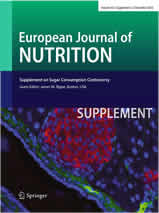
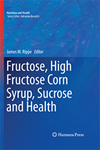
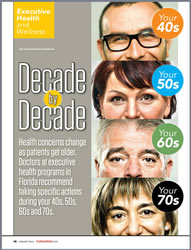

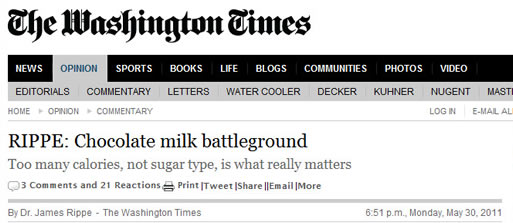
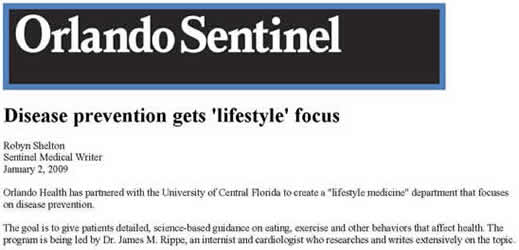
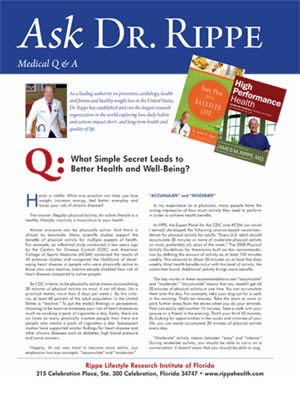
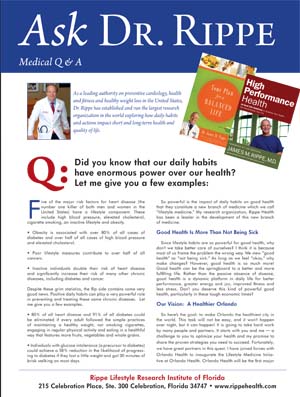
.jpg)
